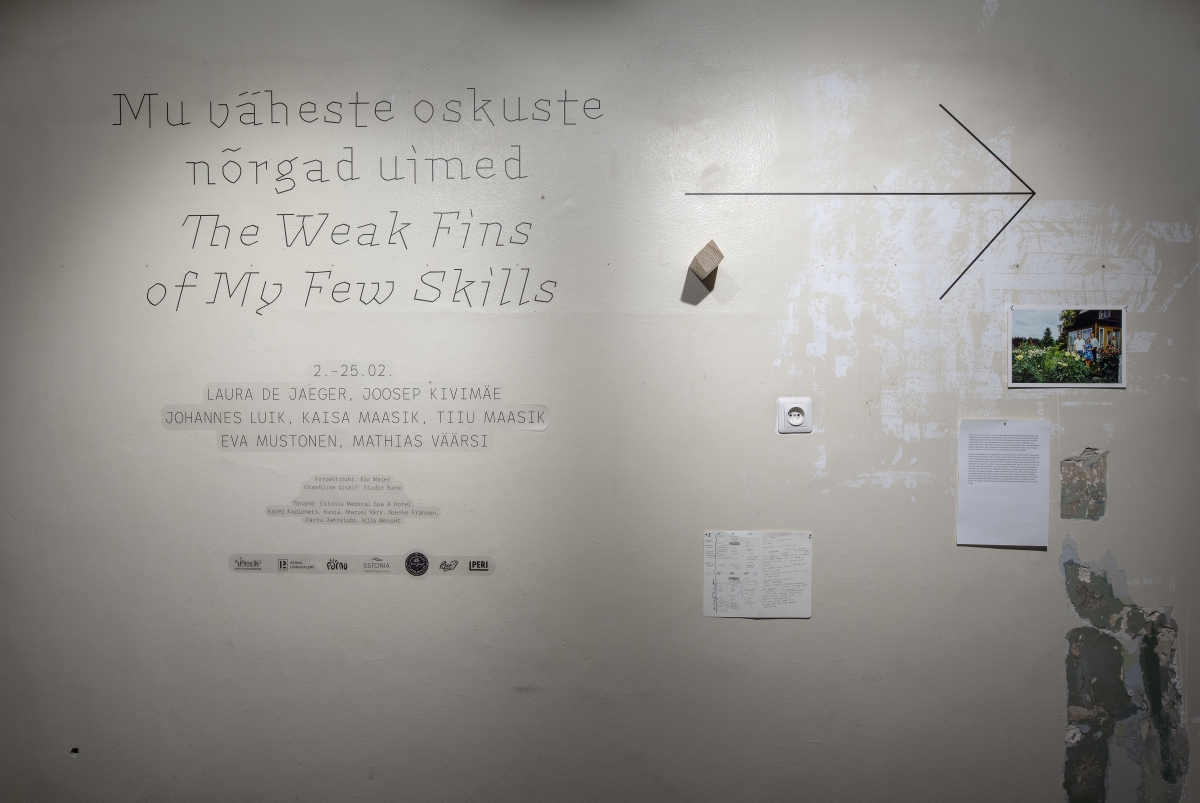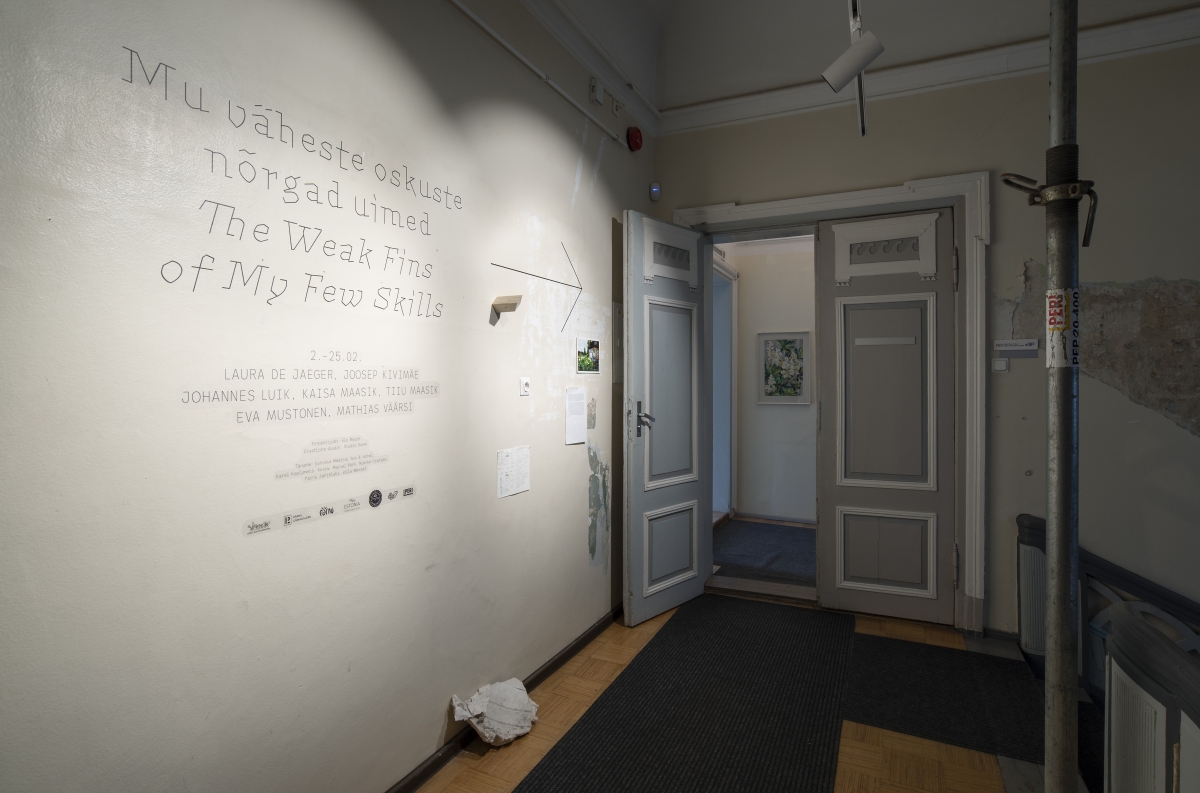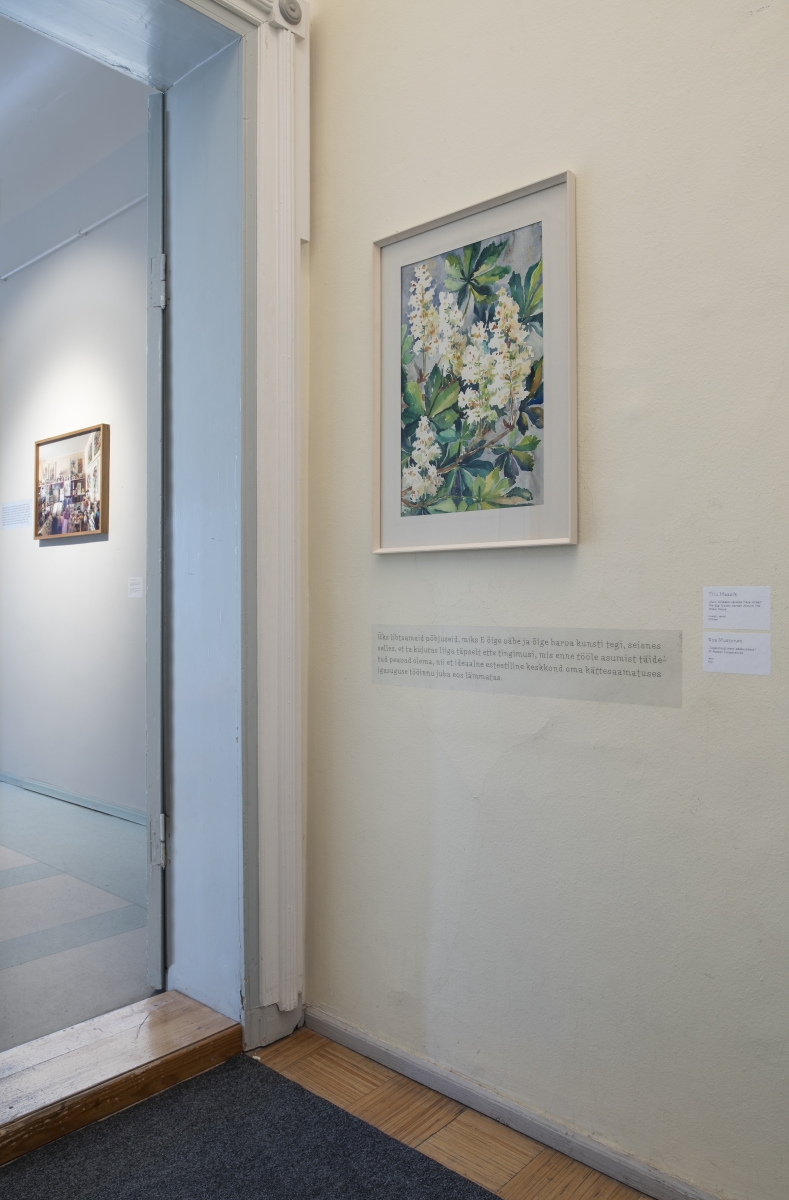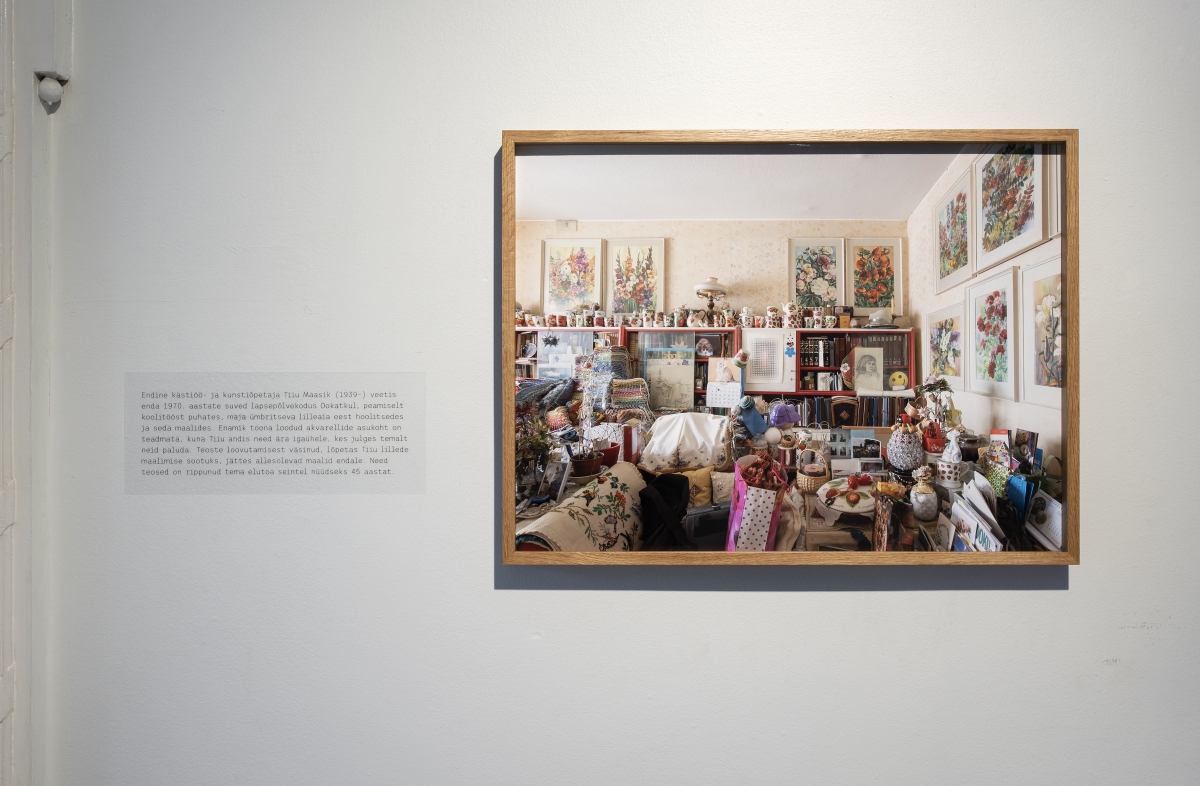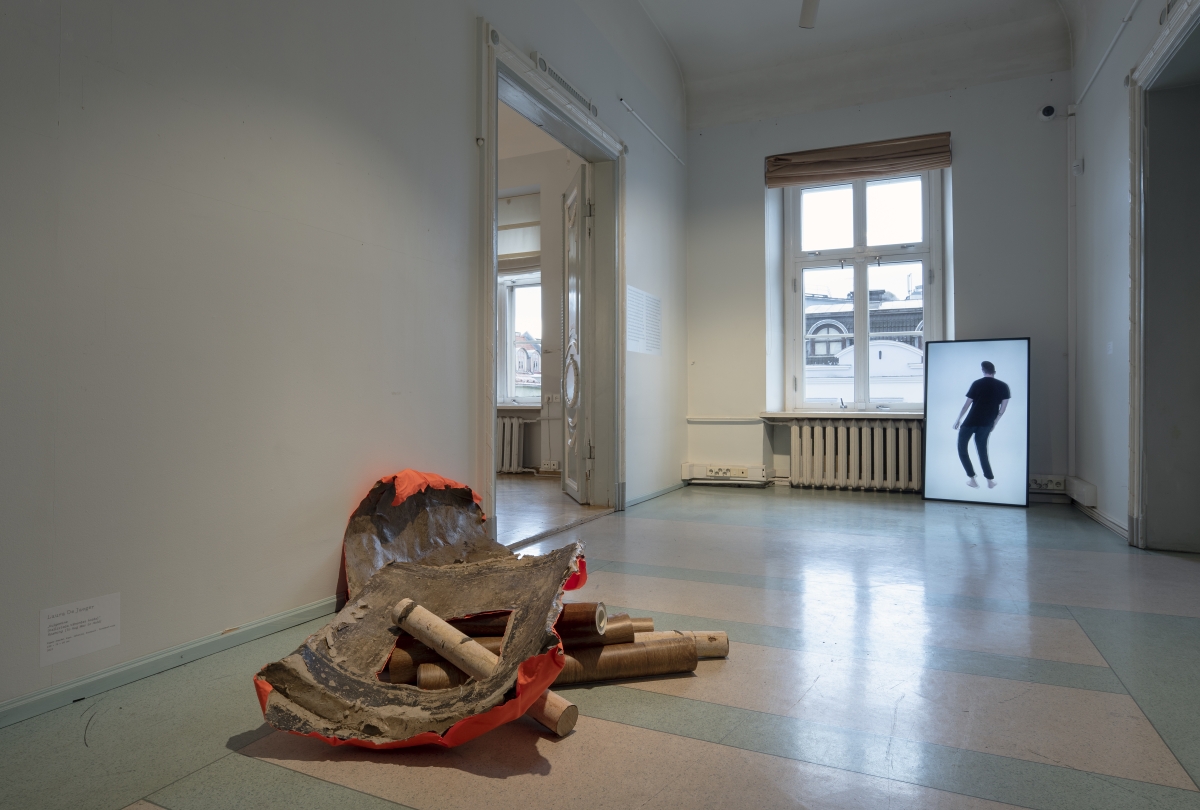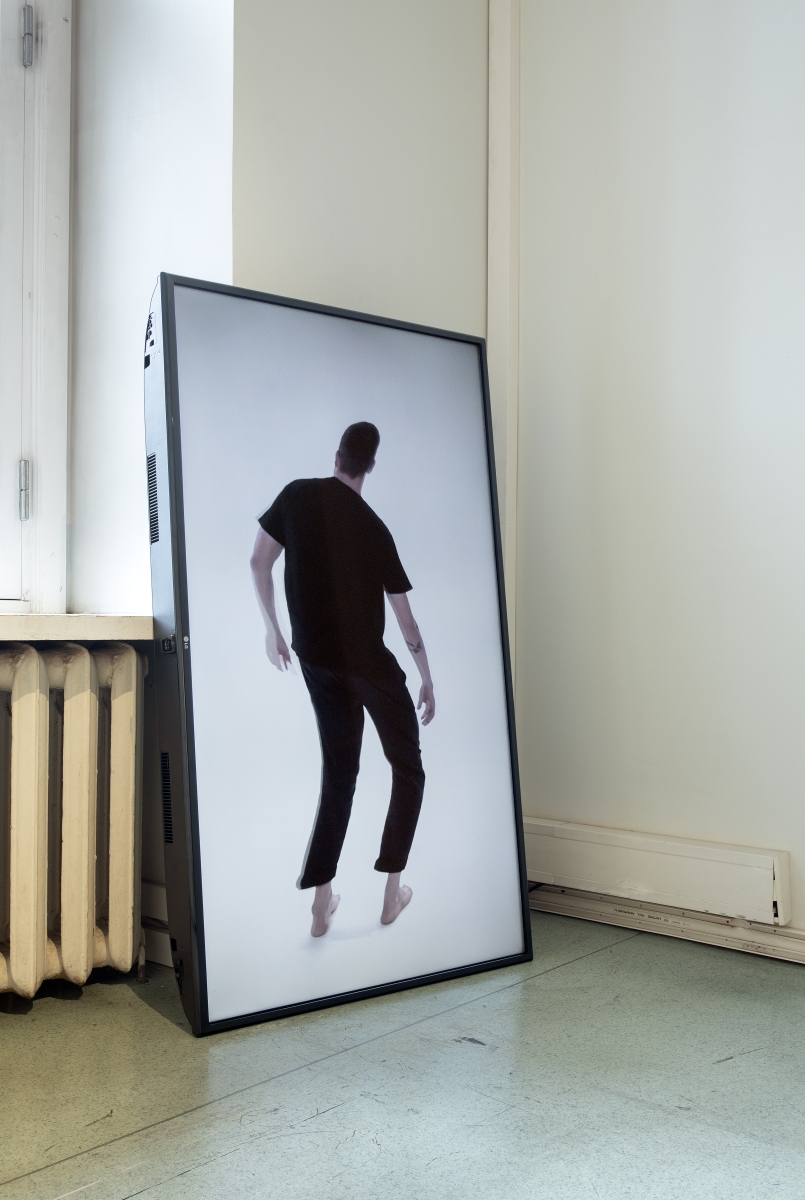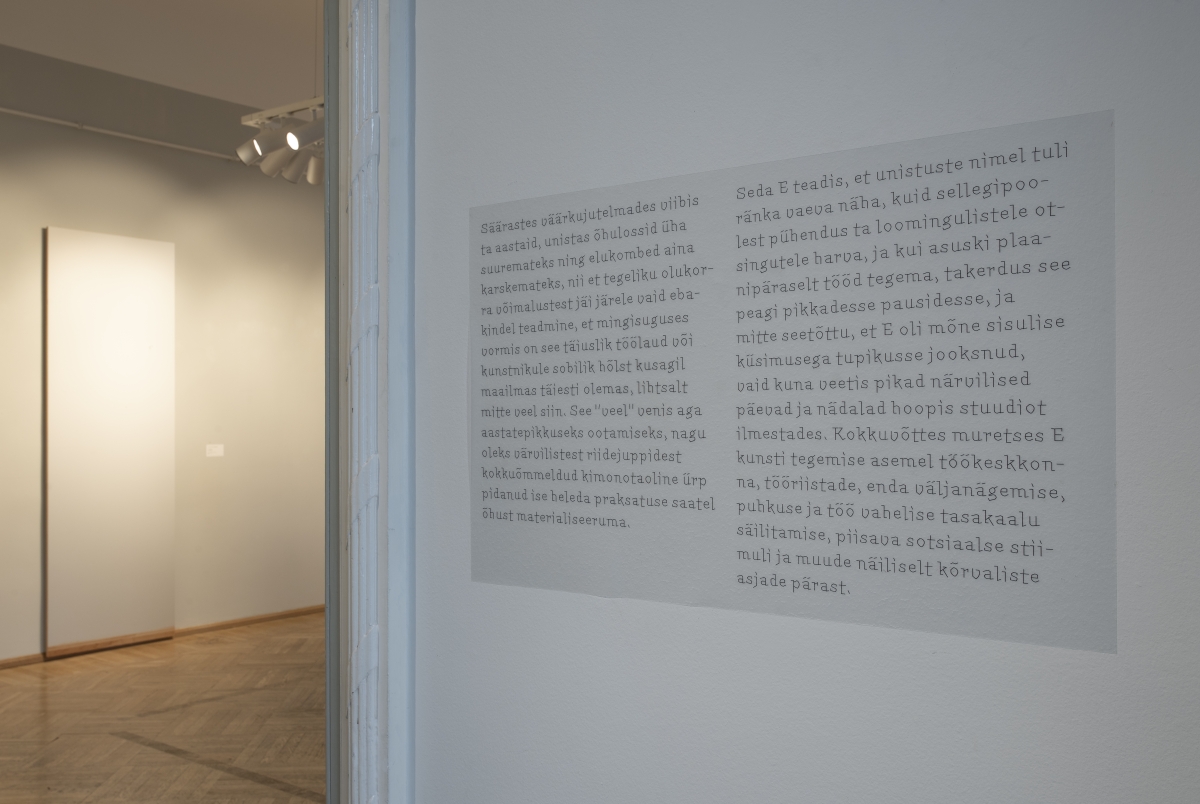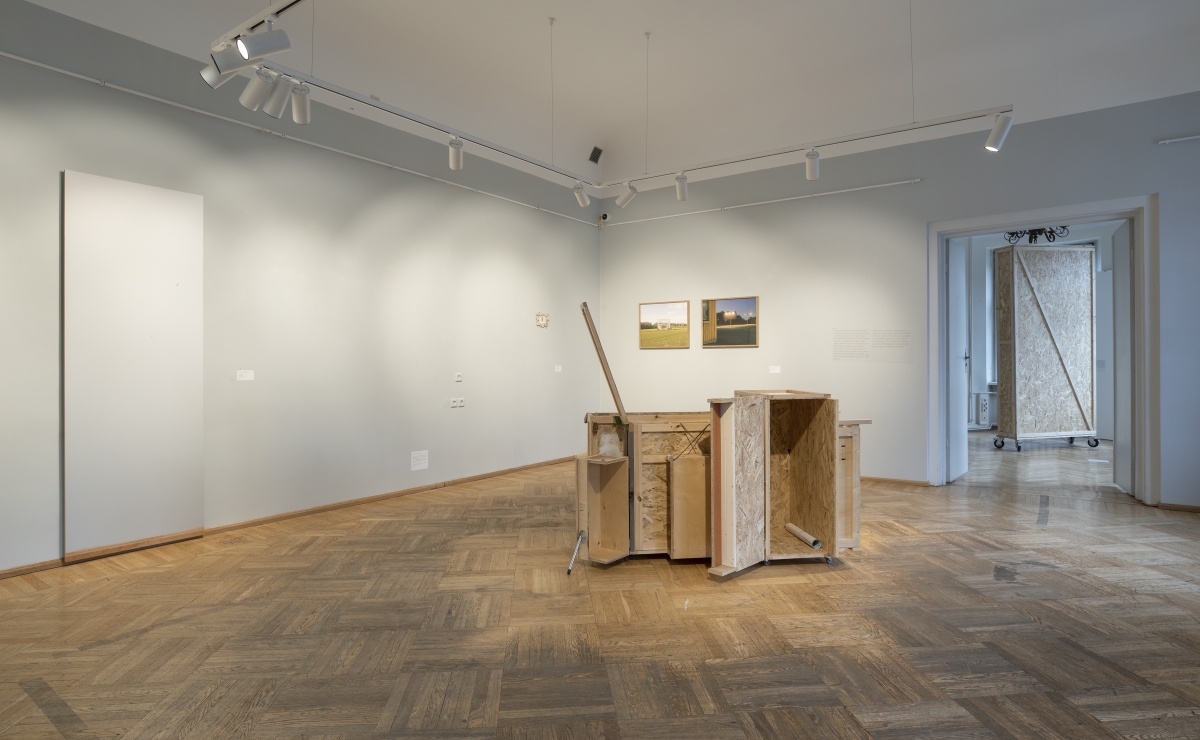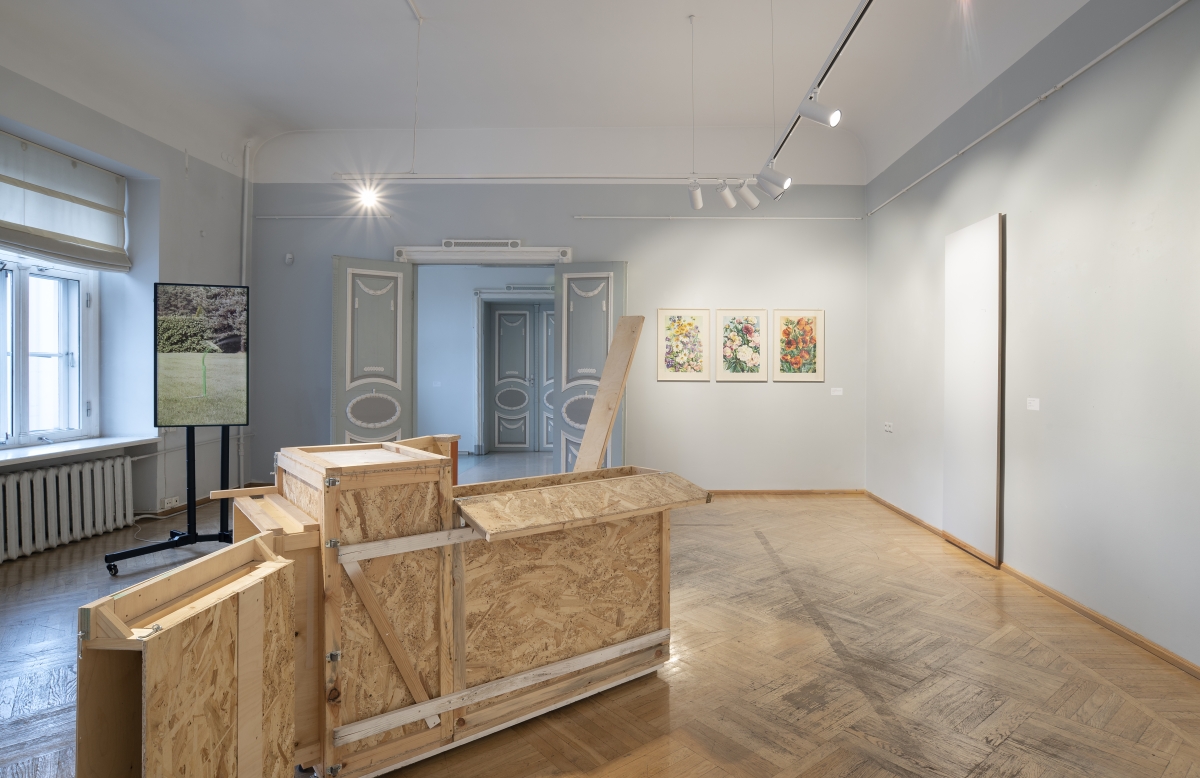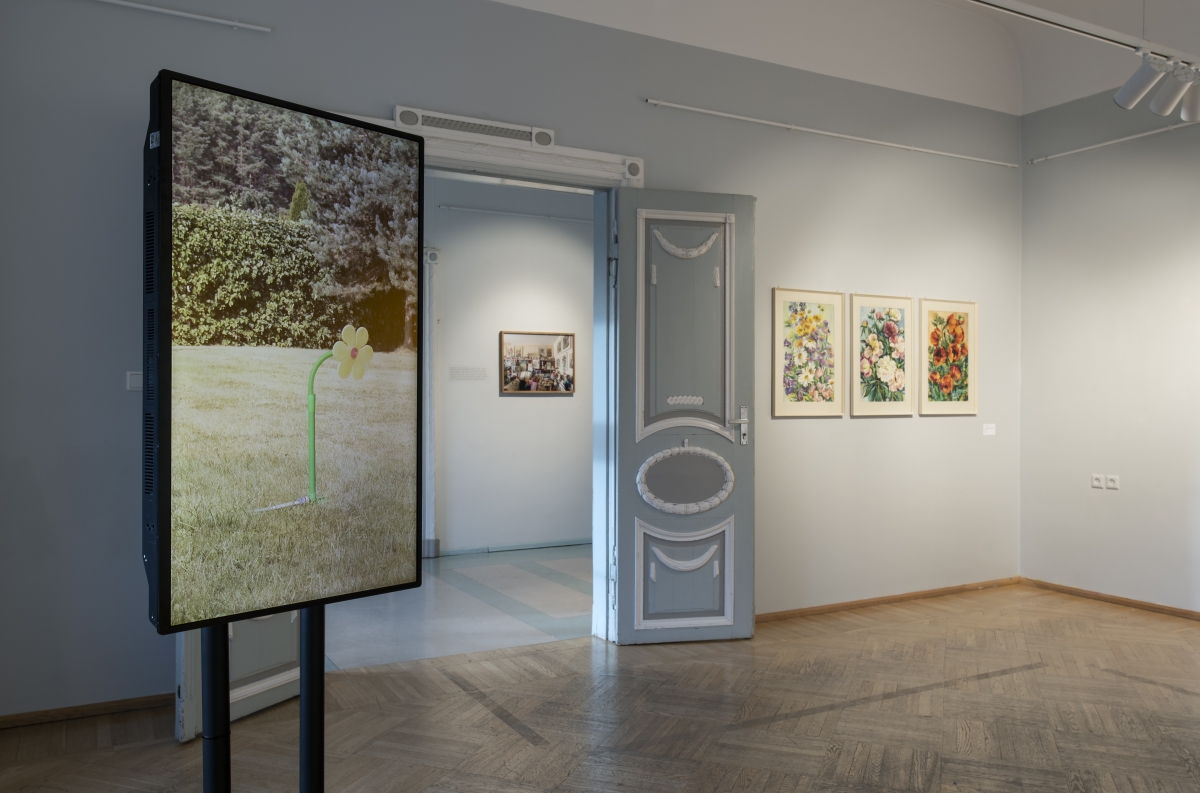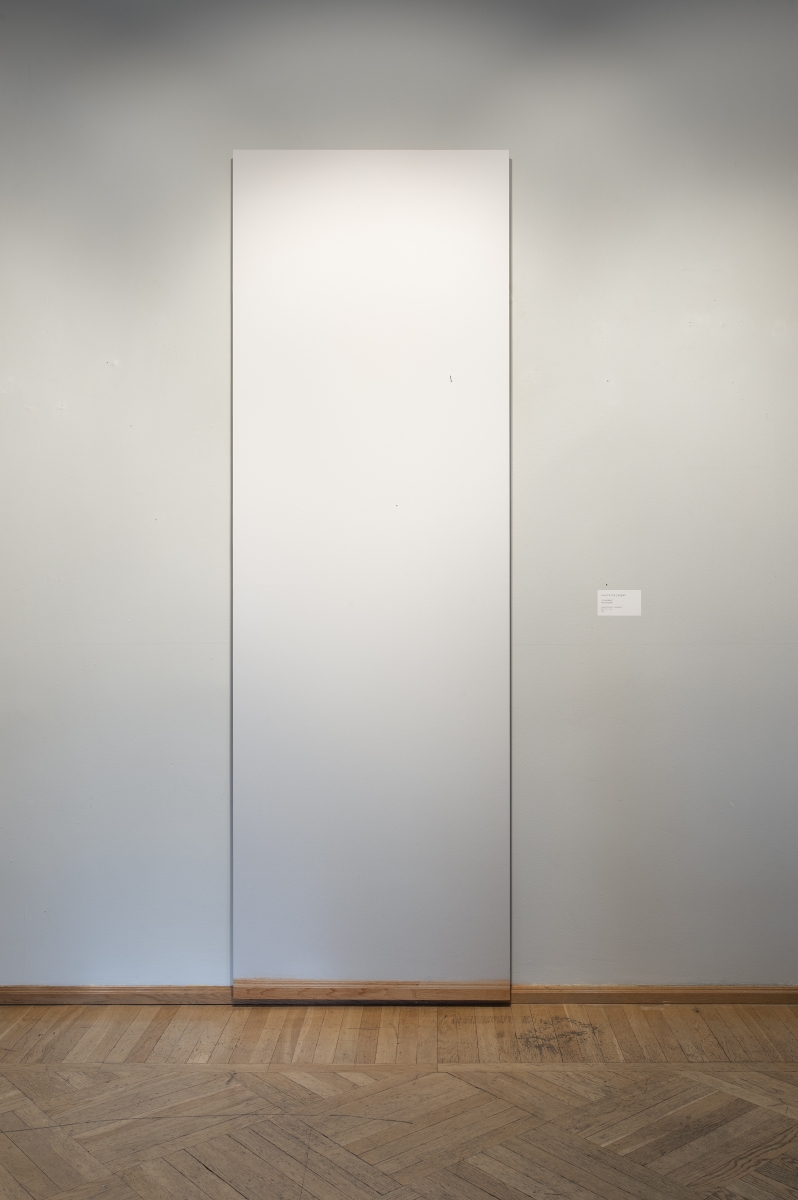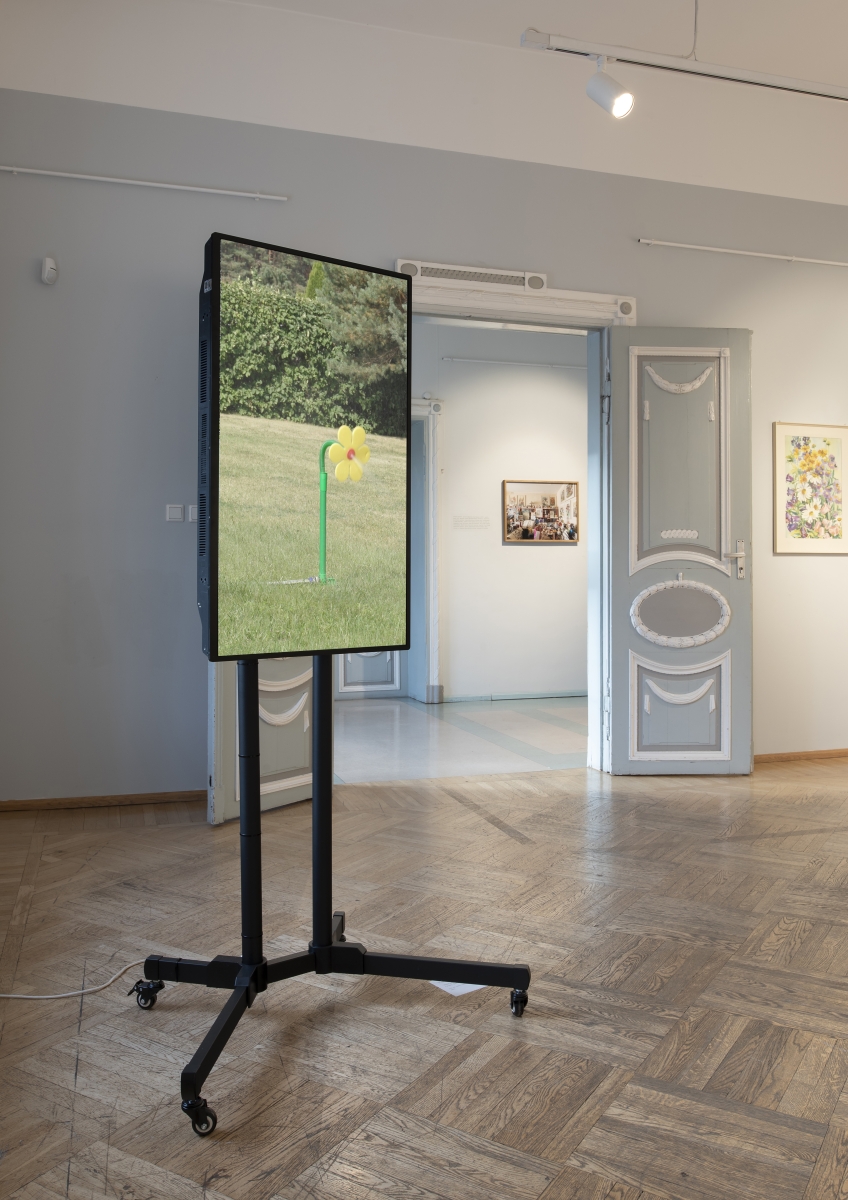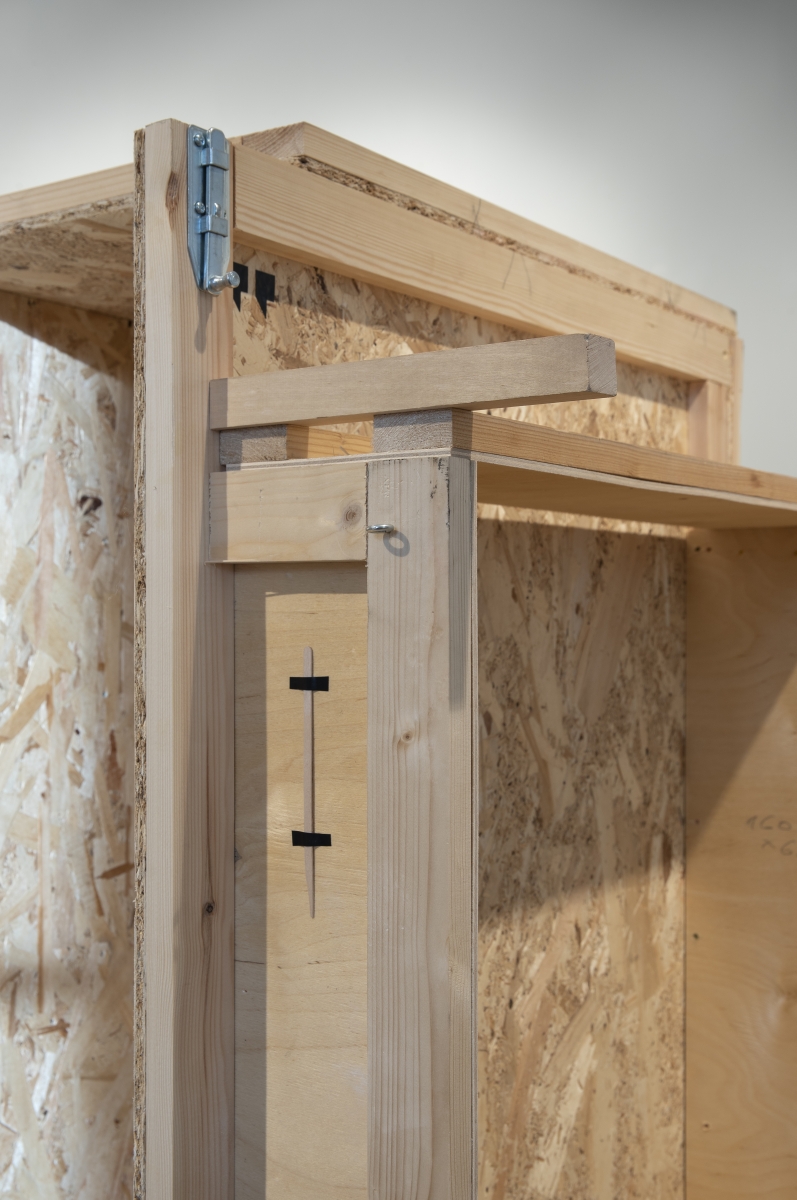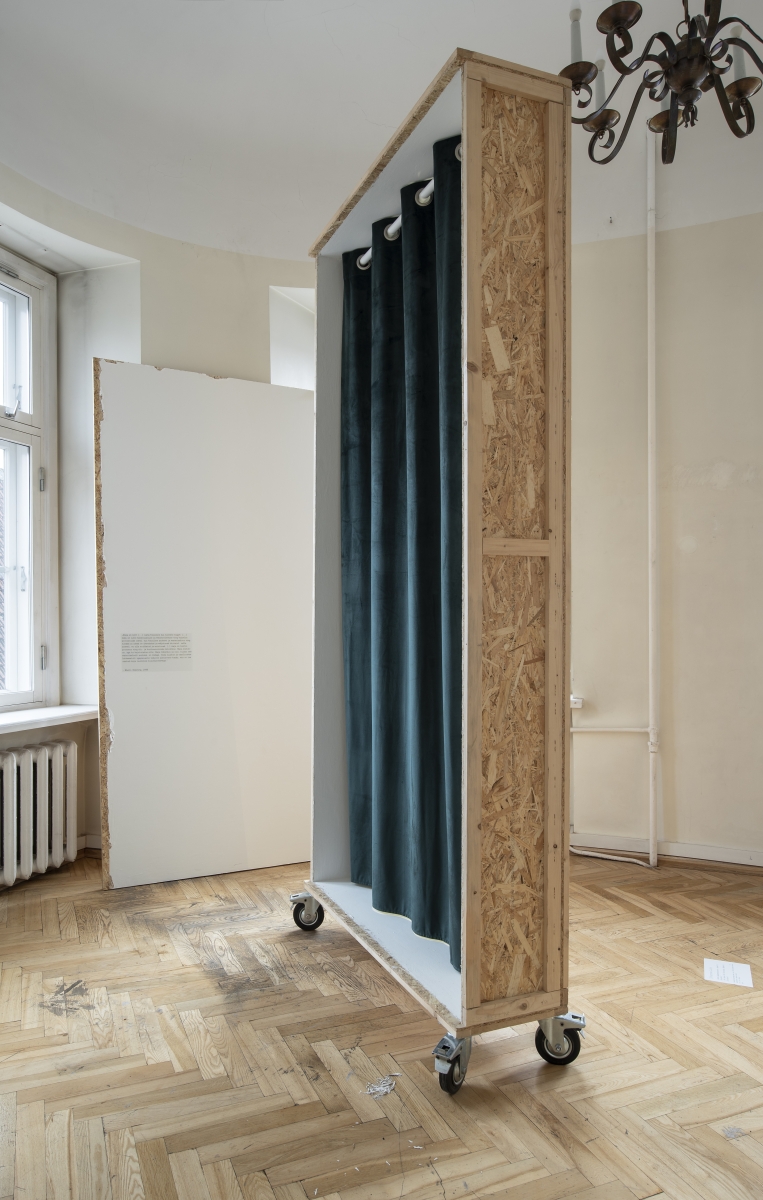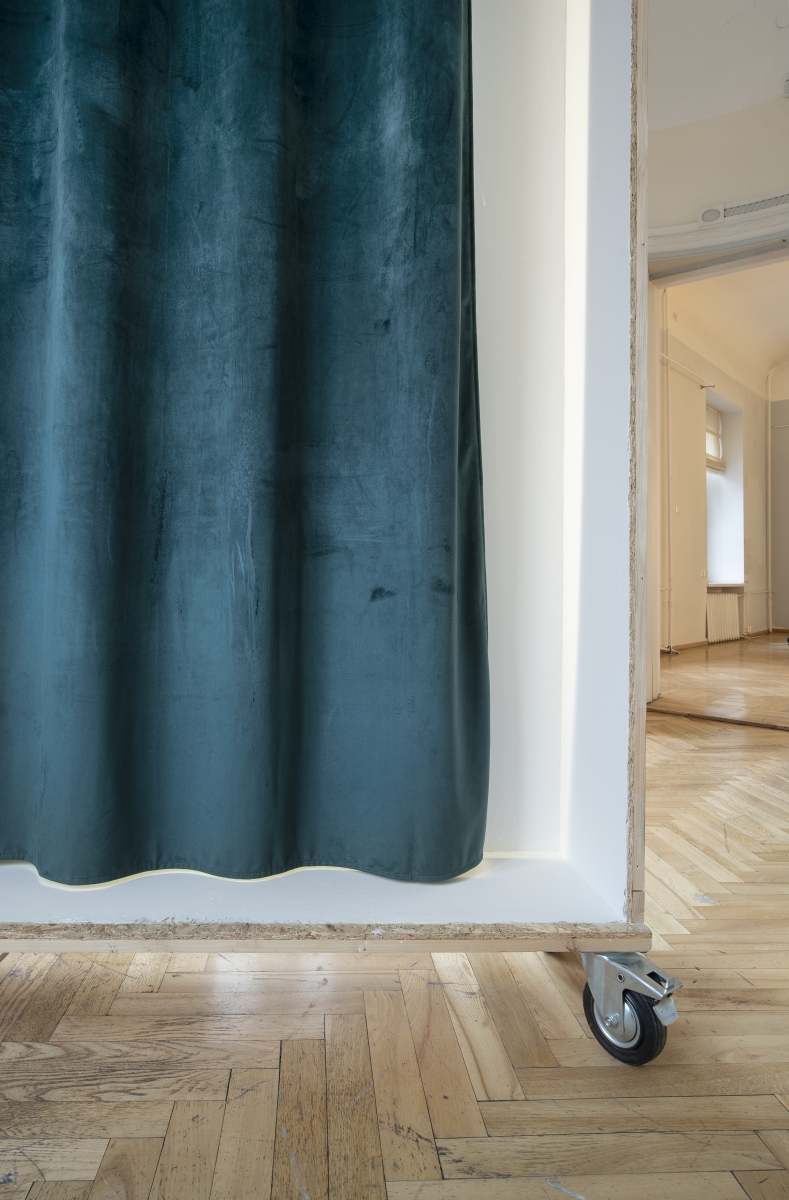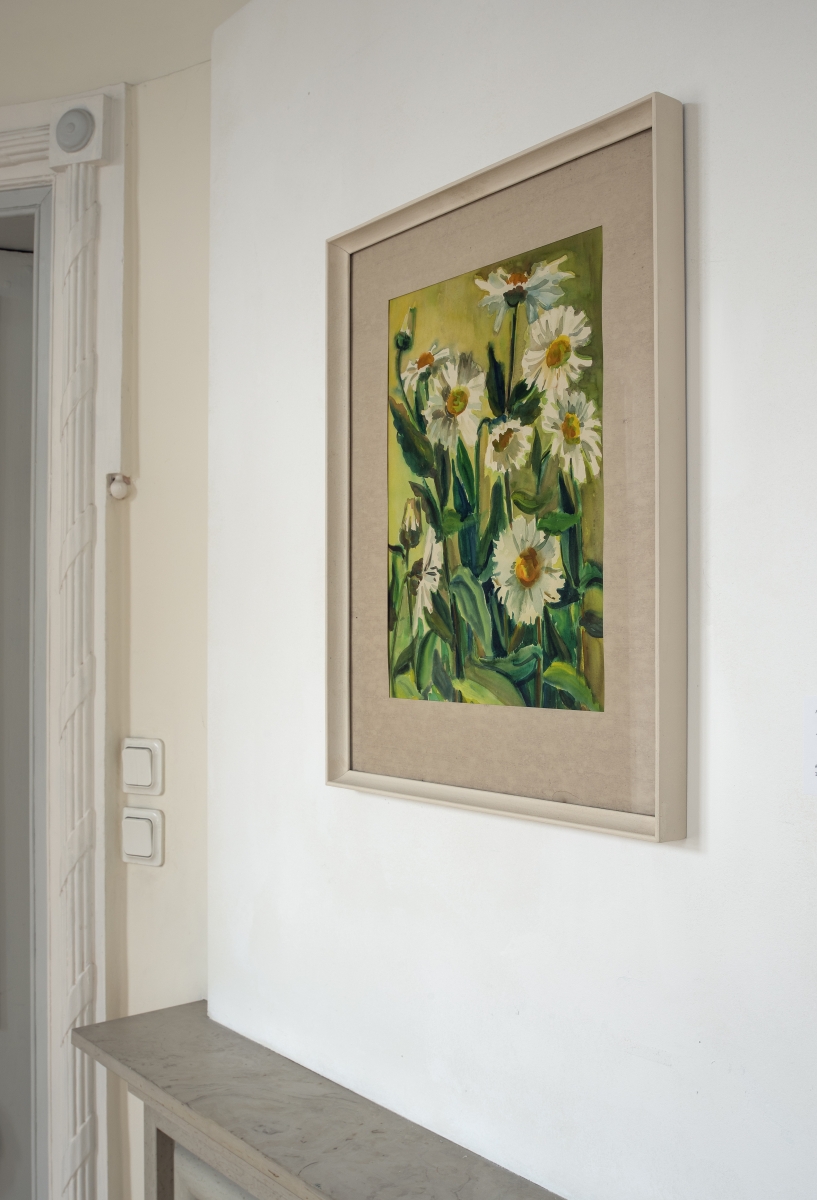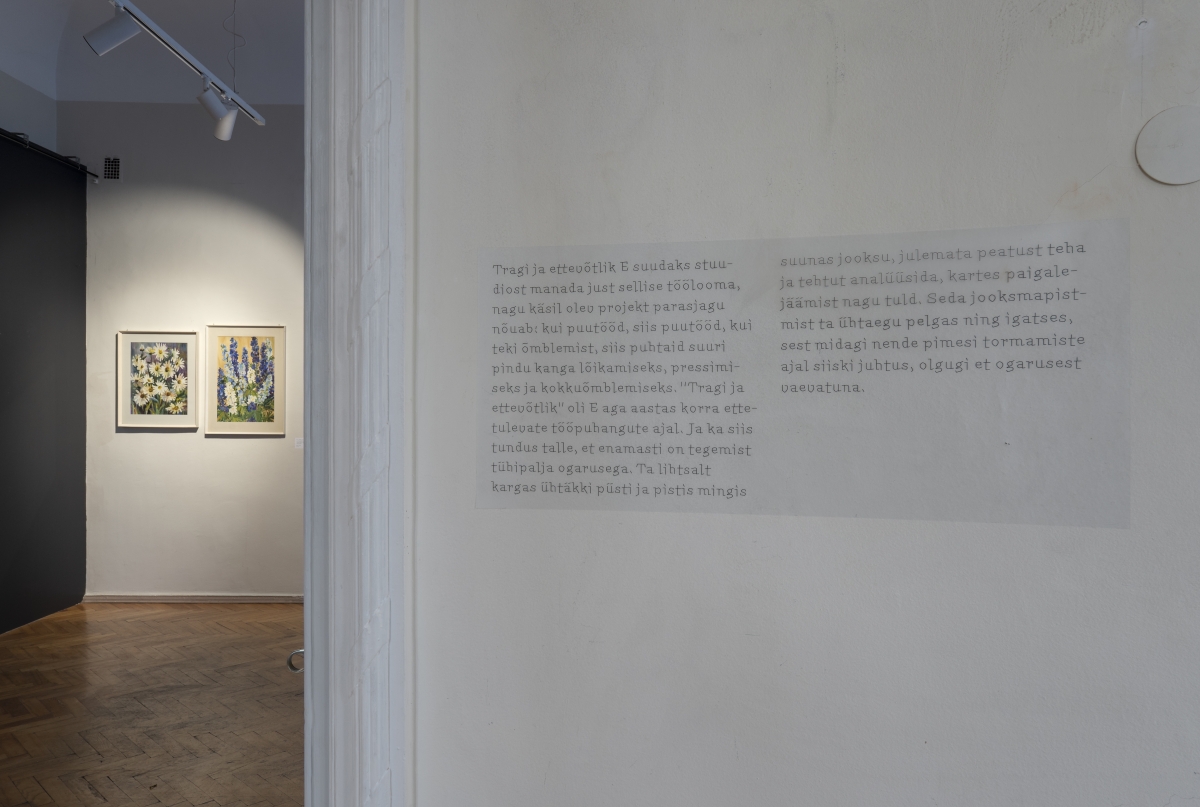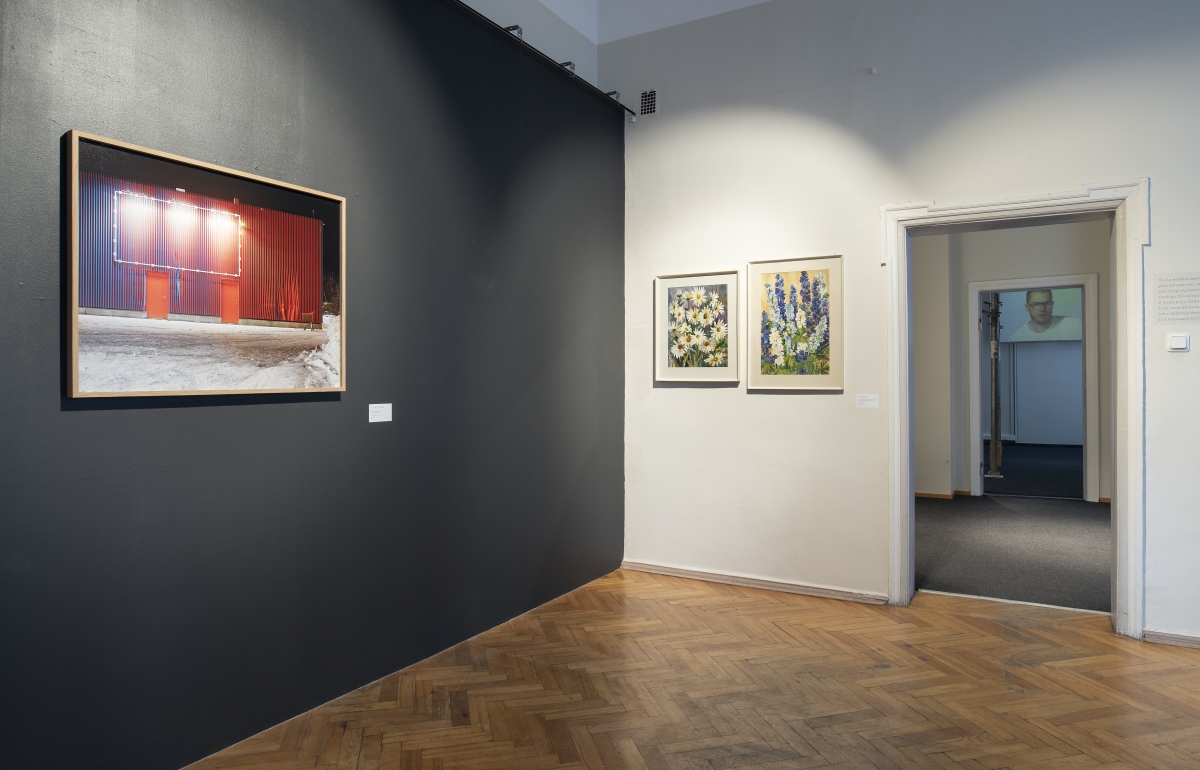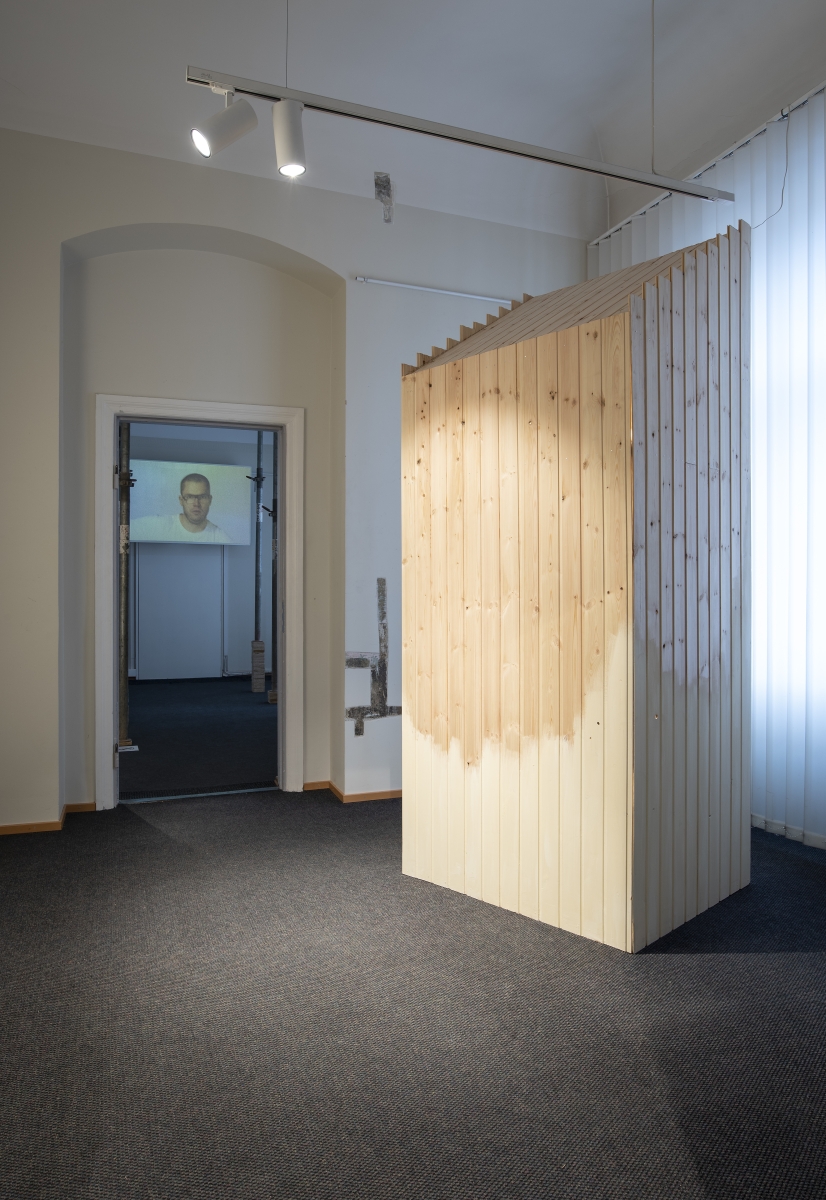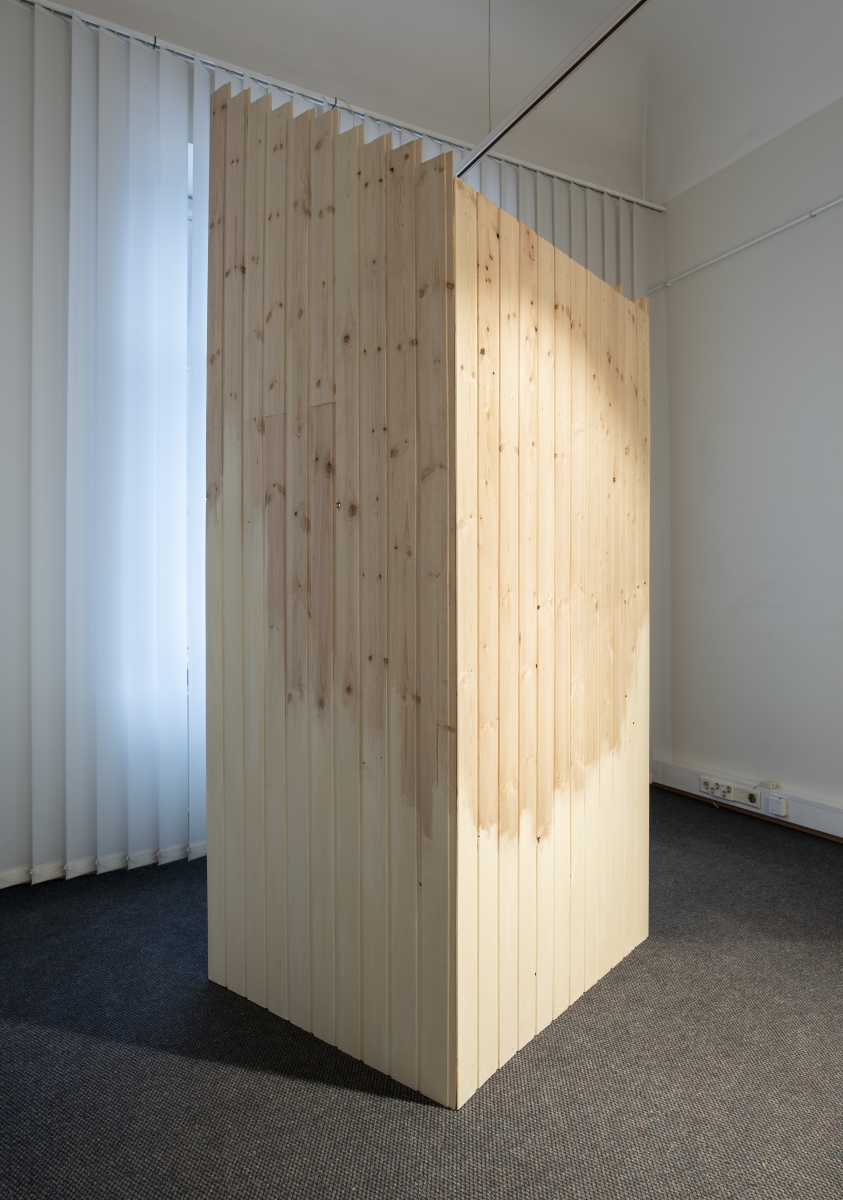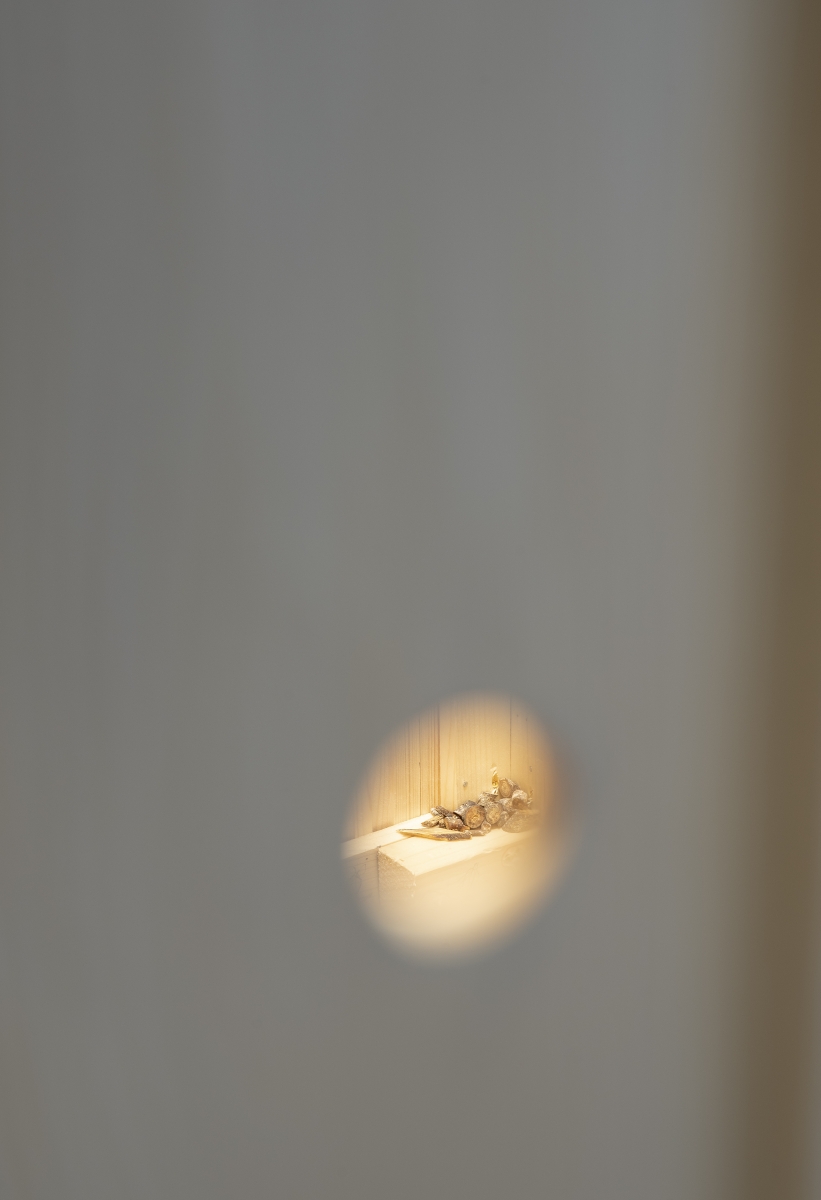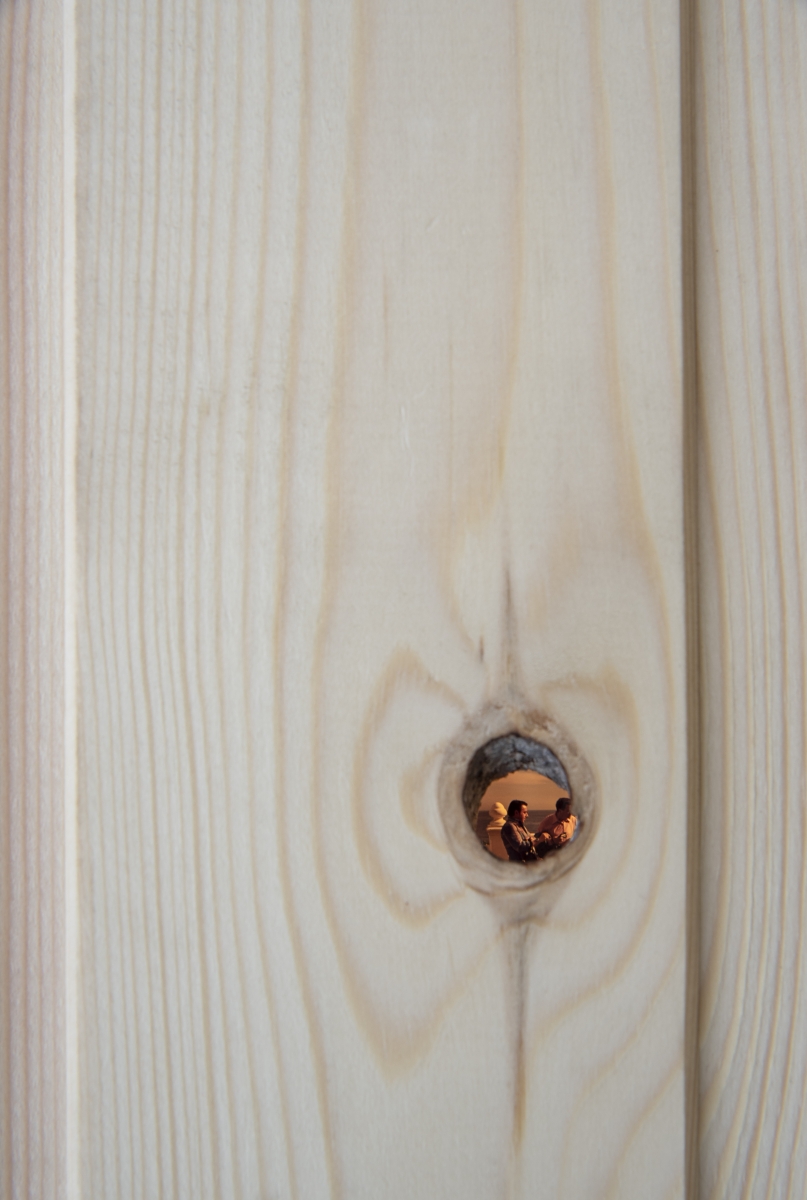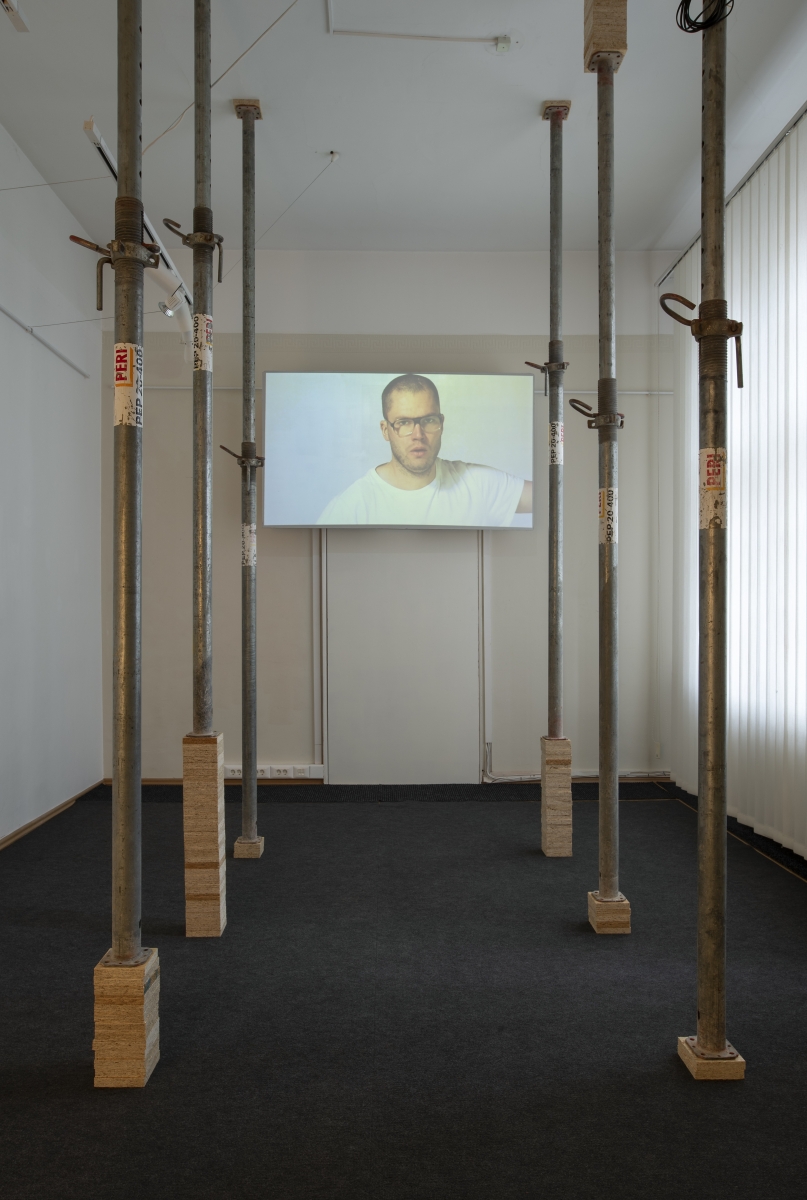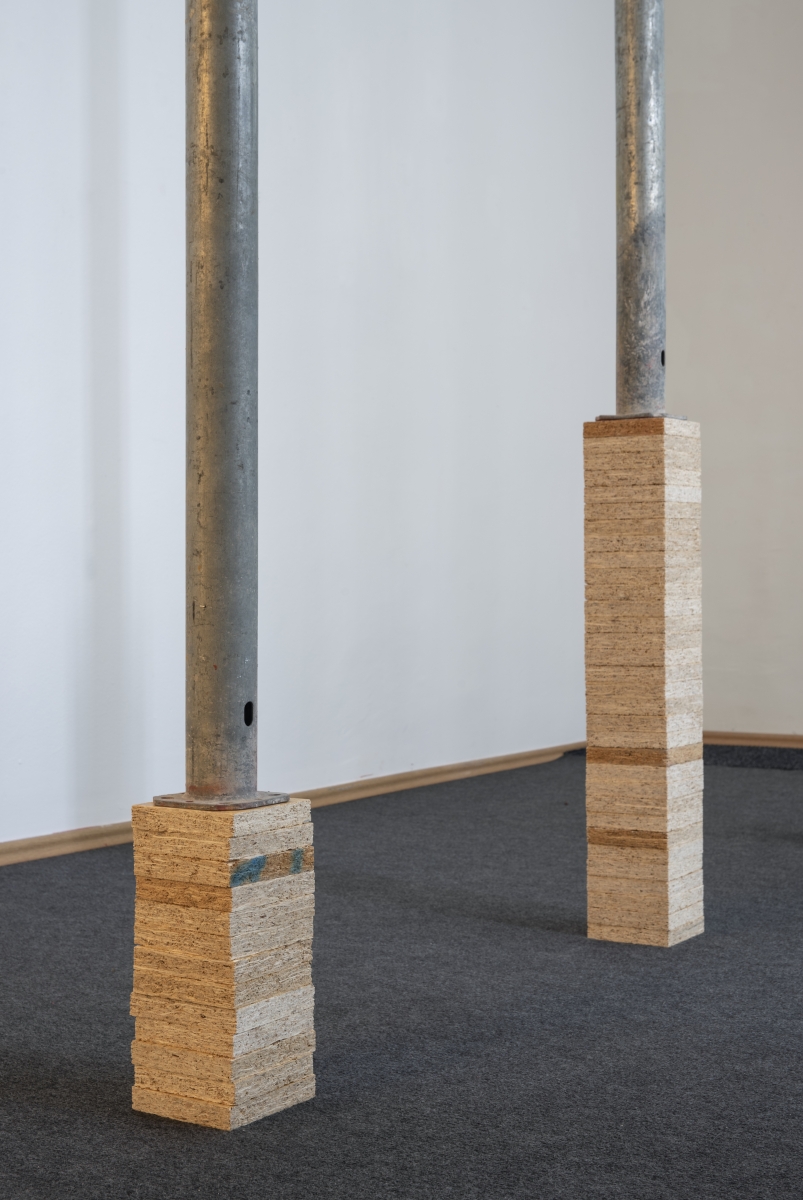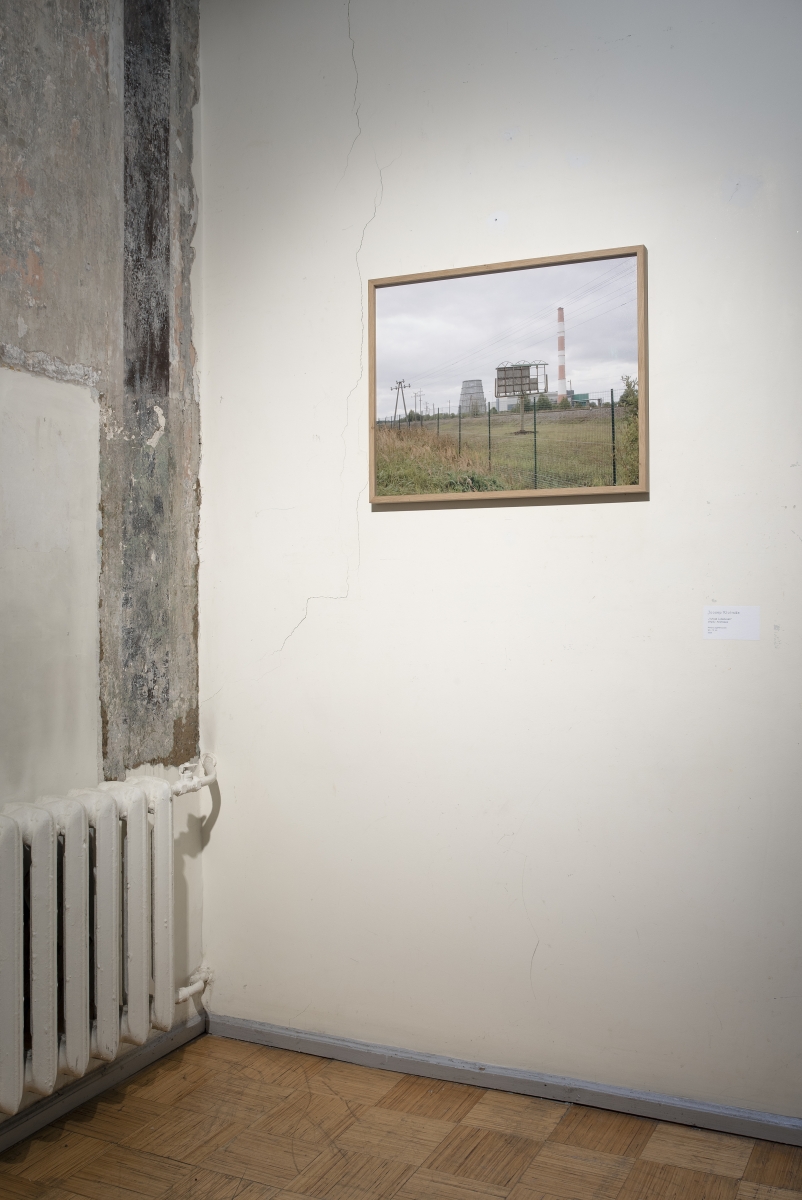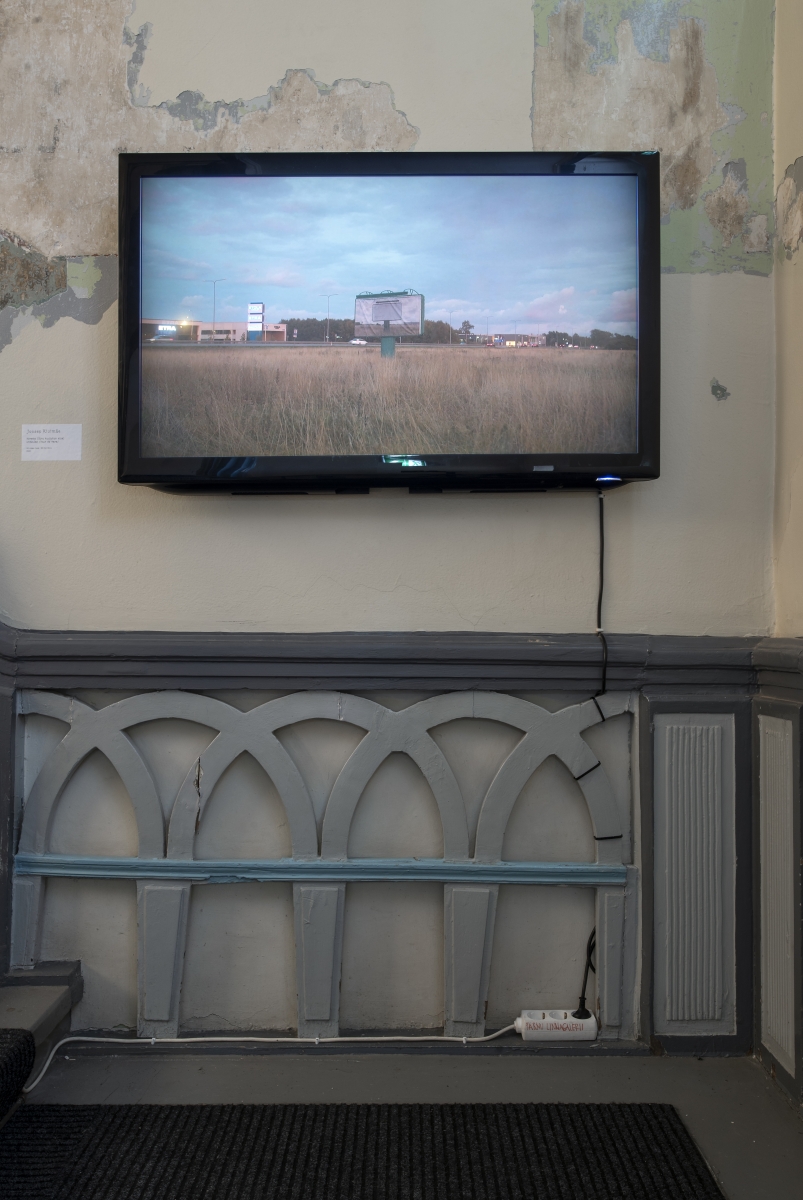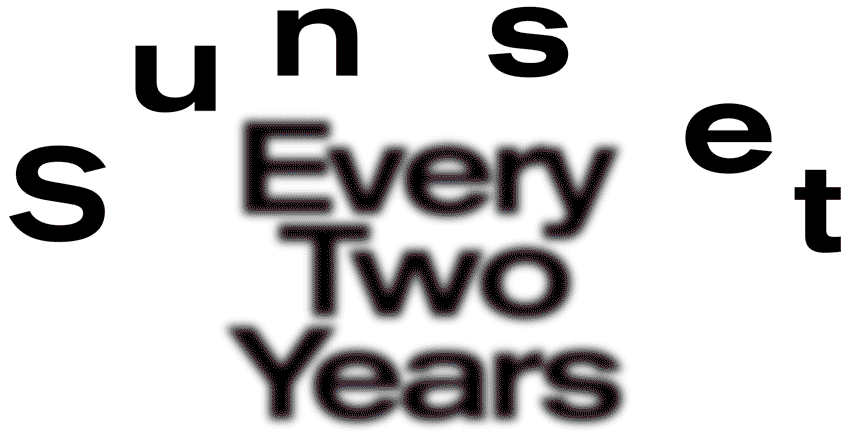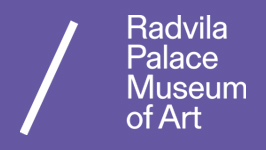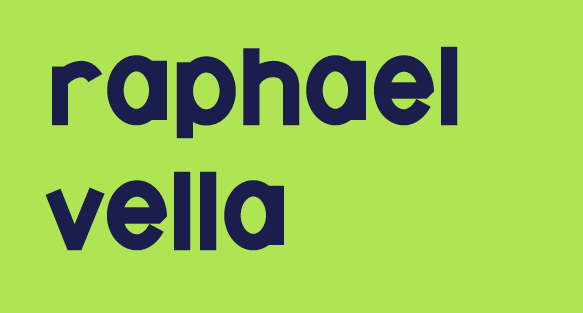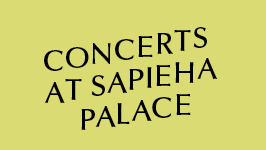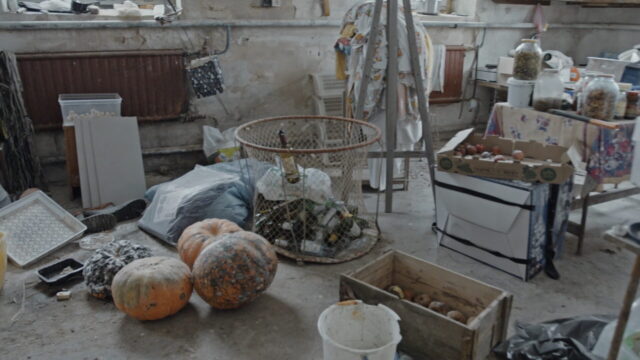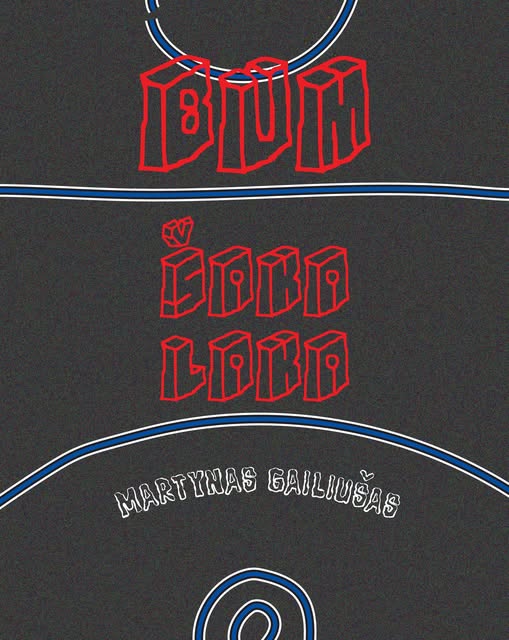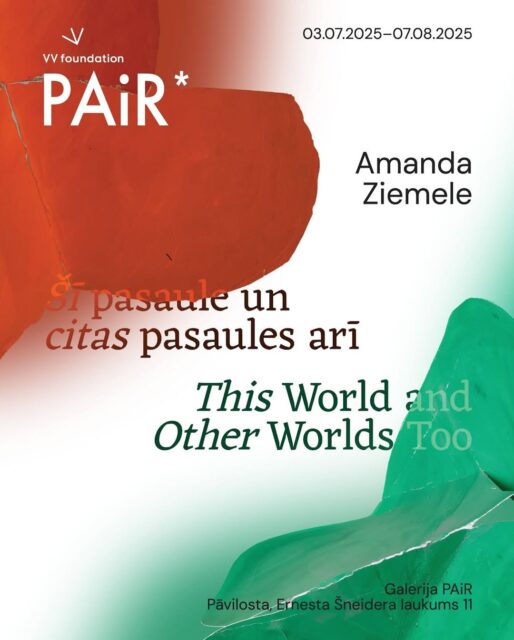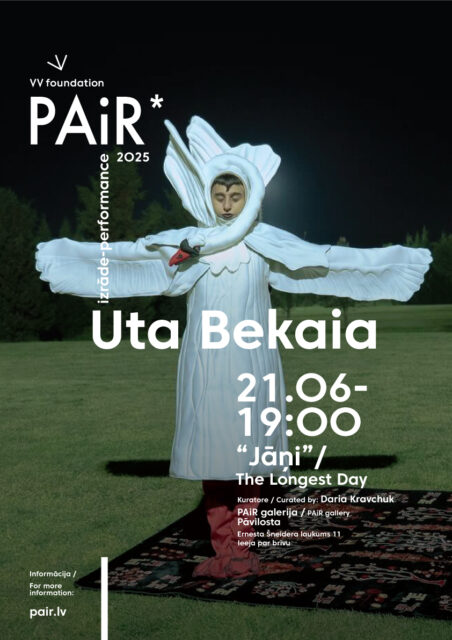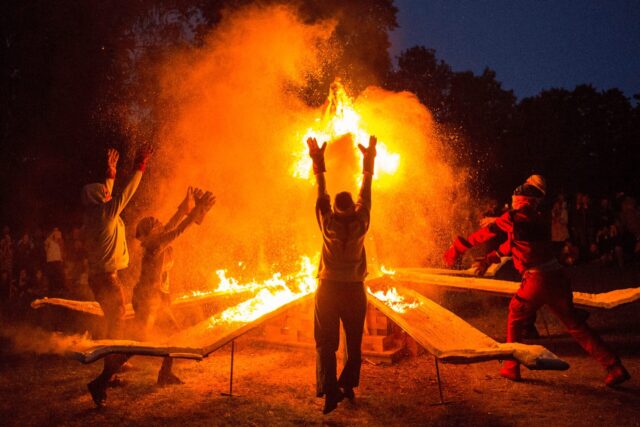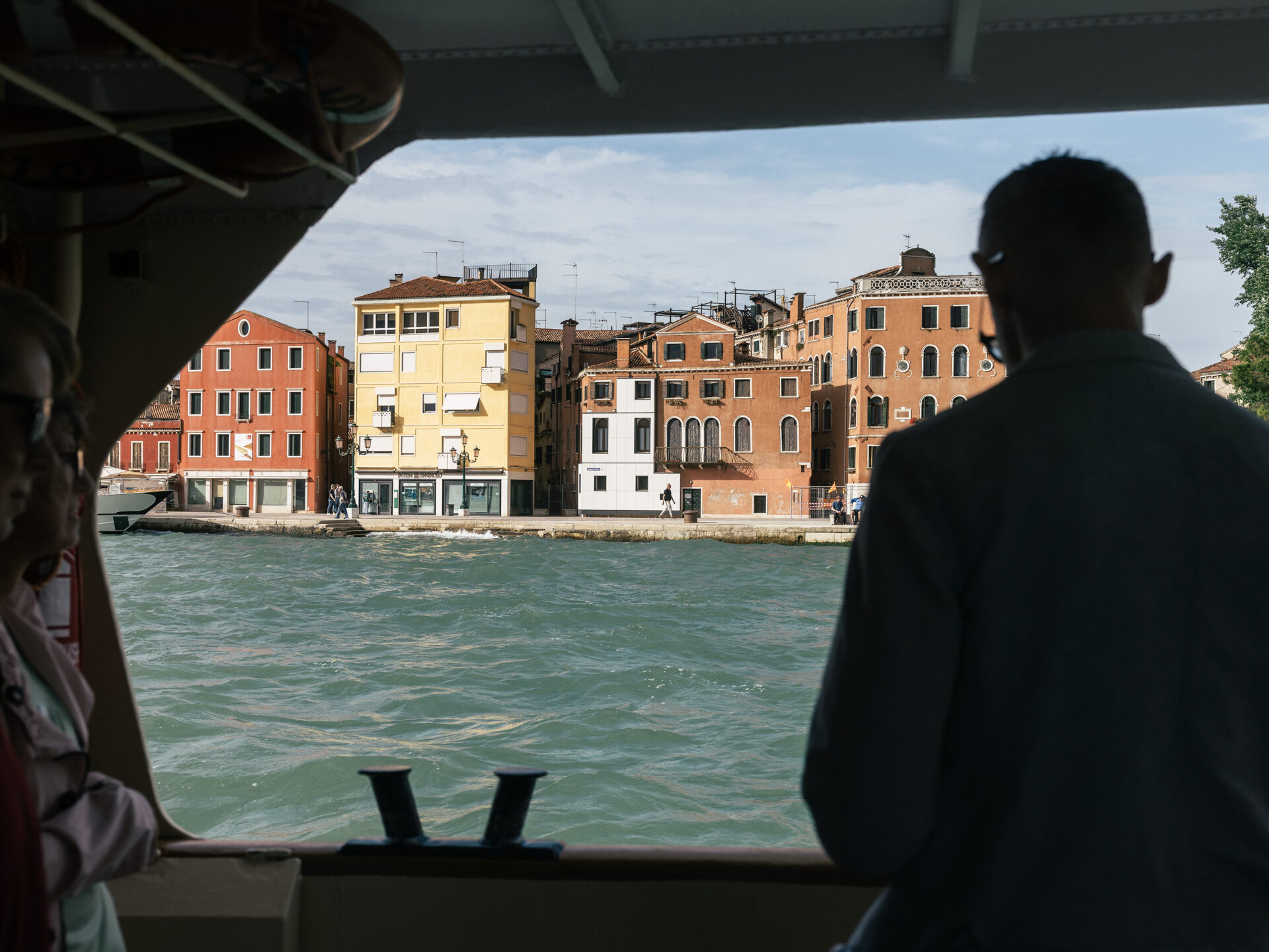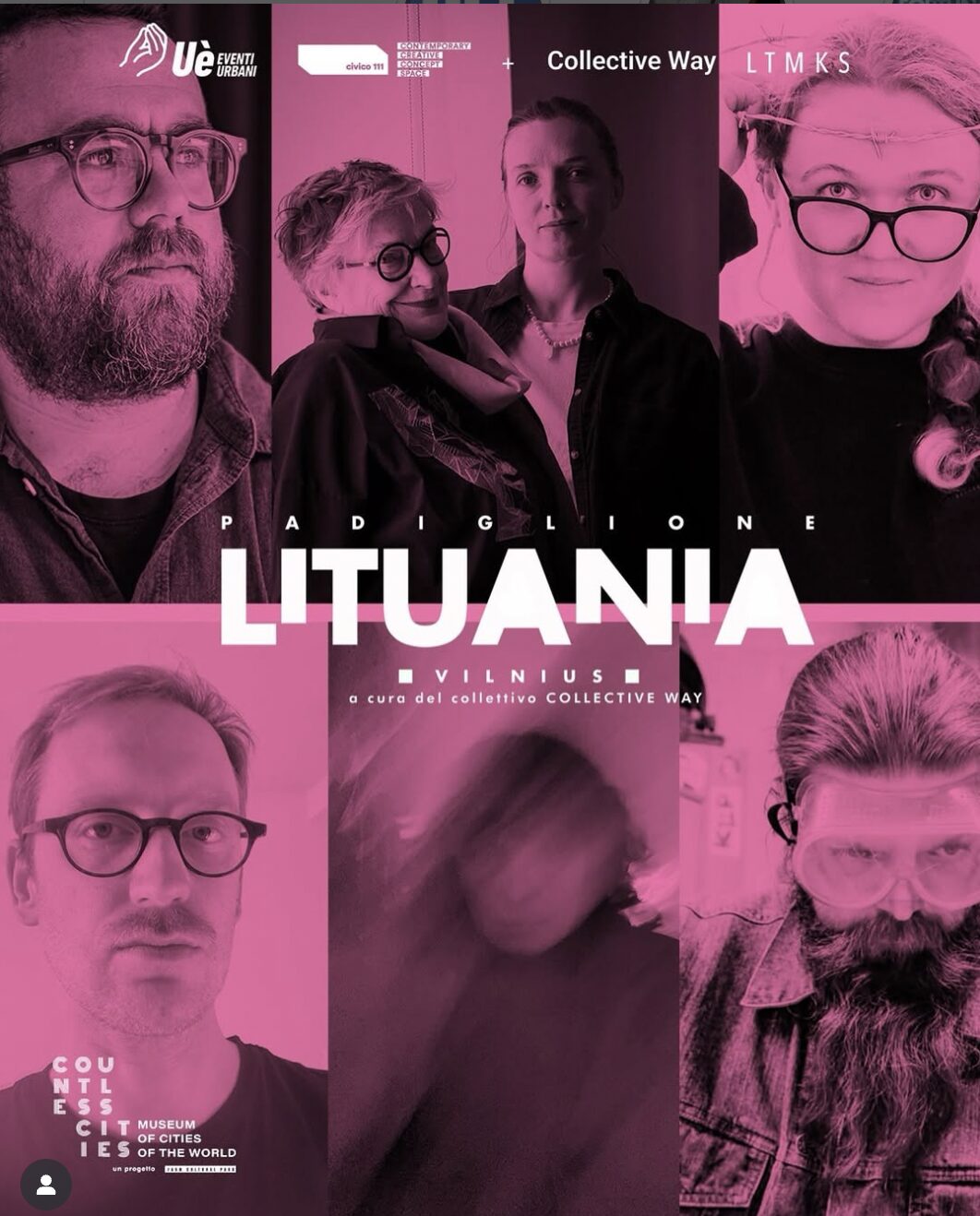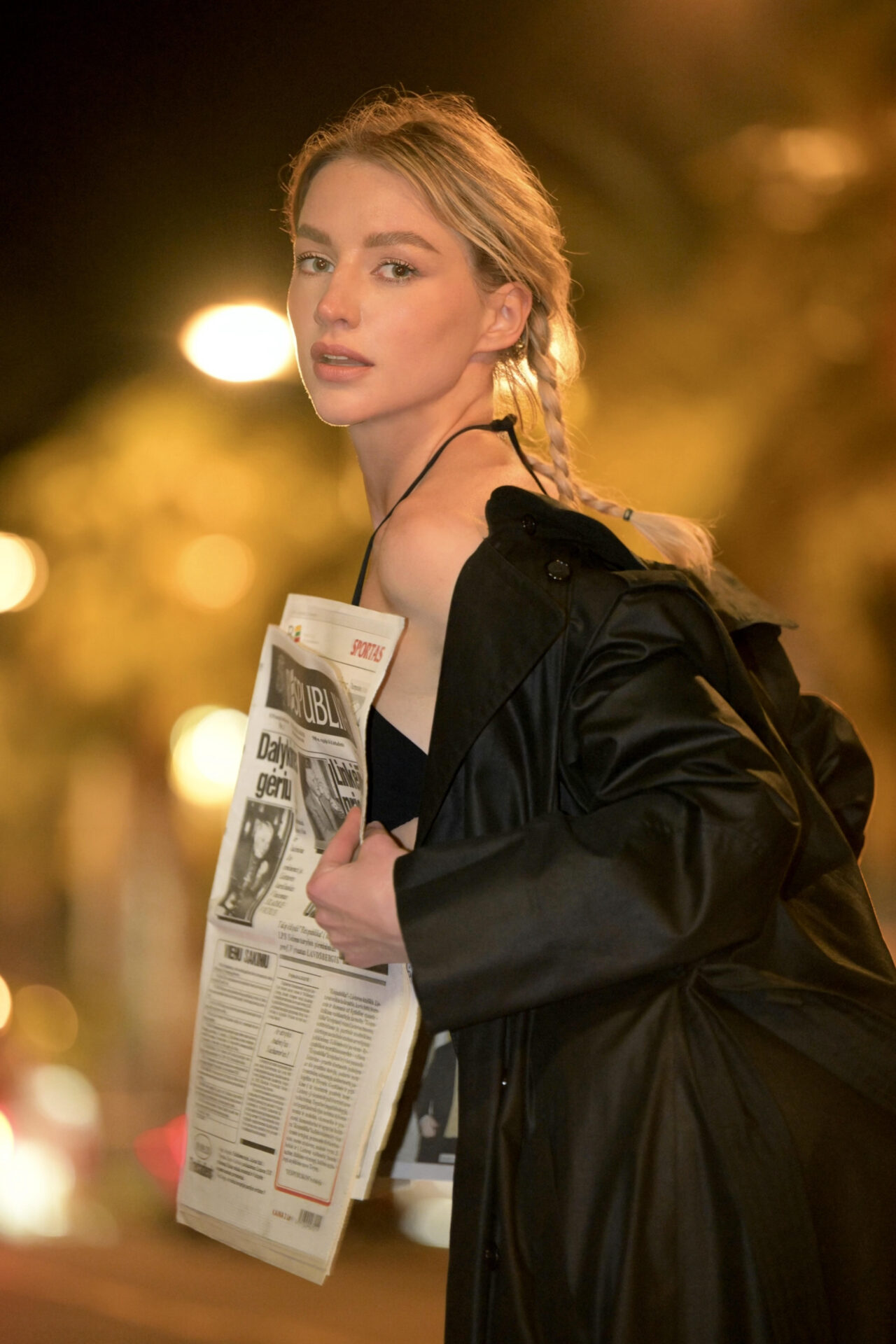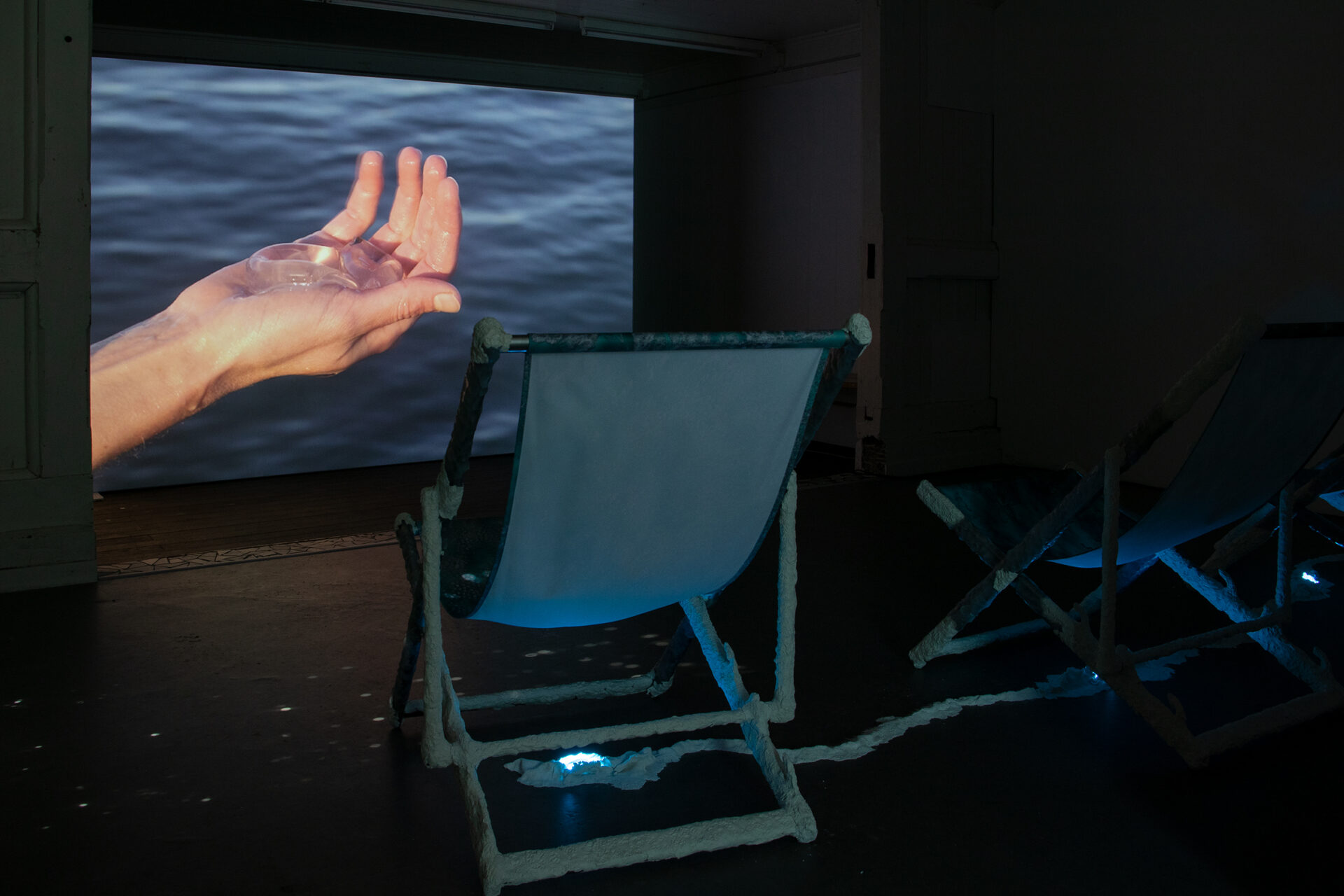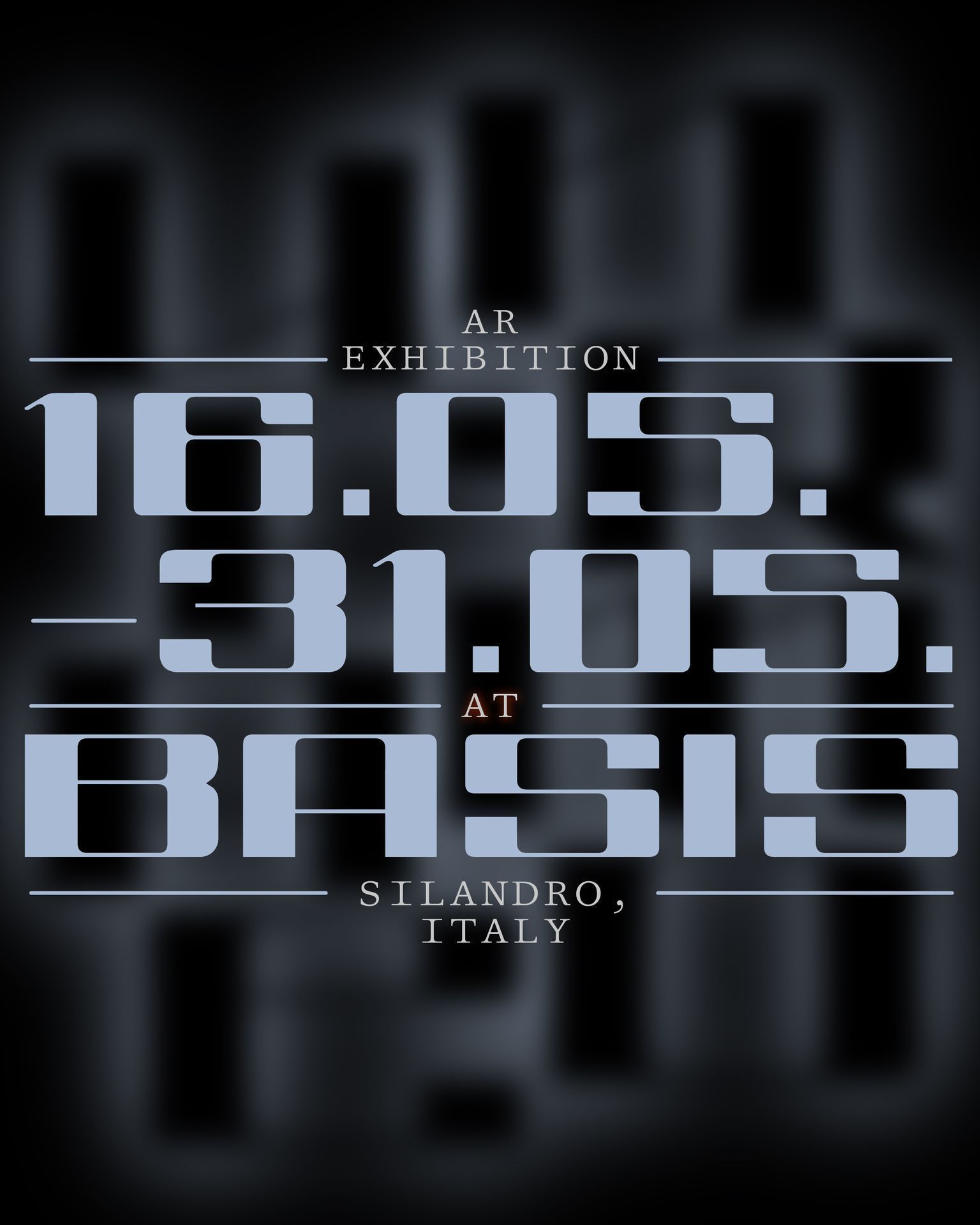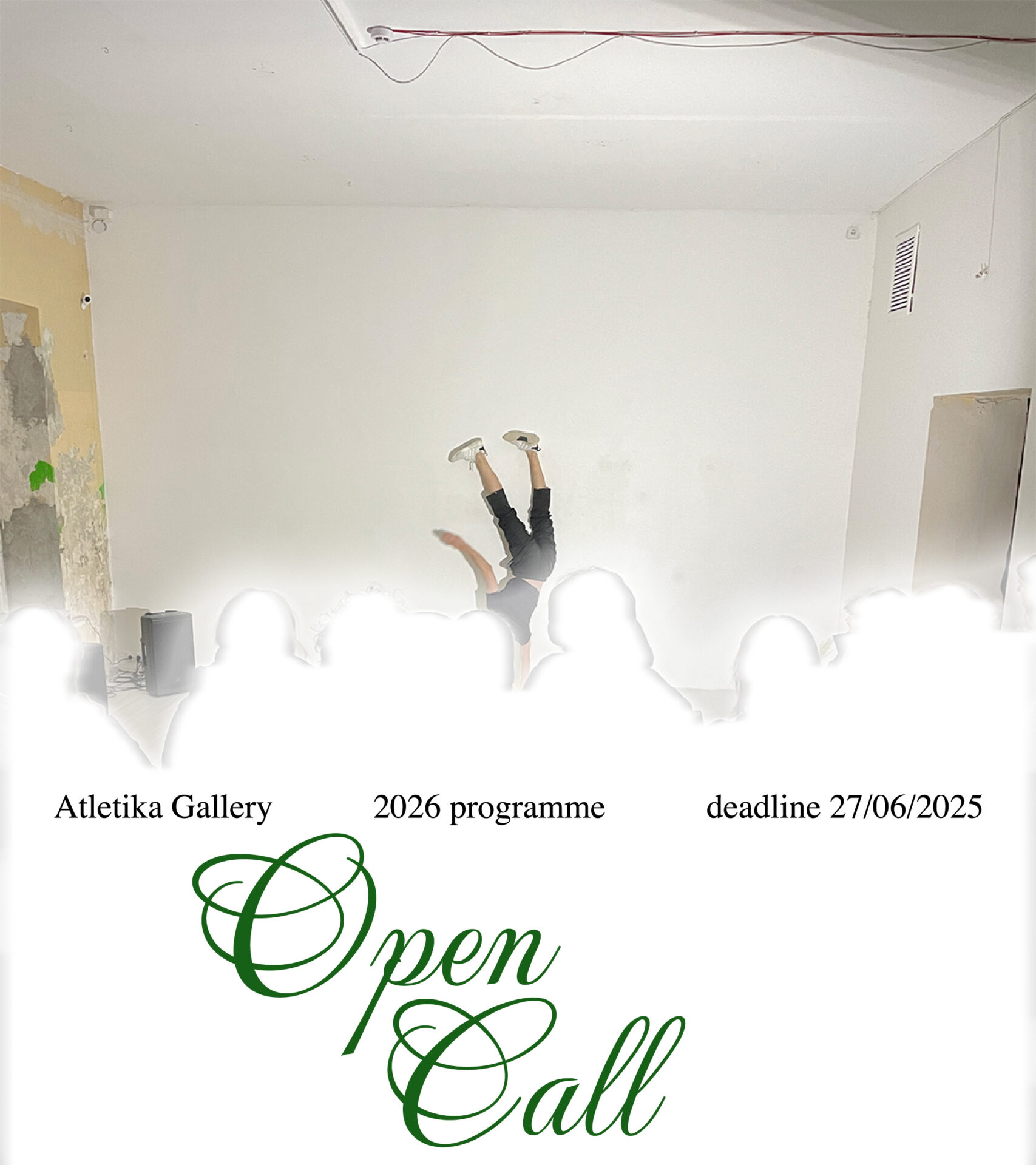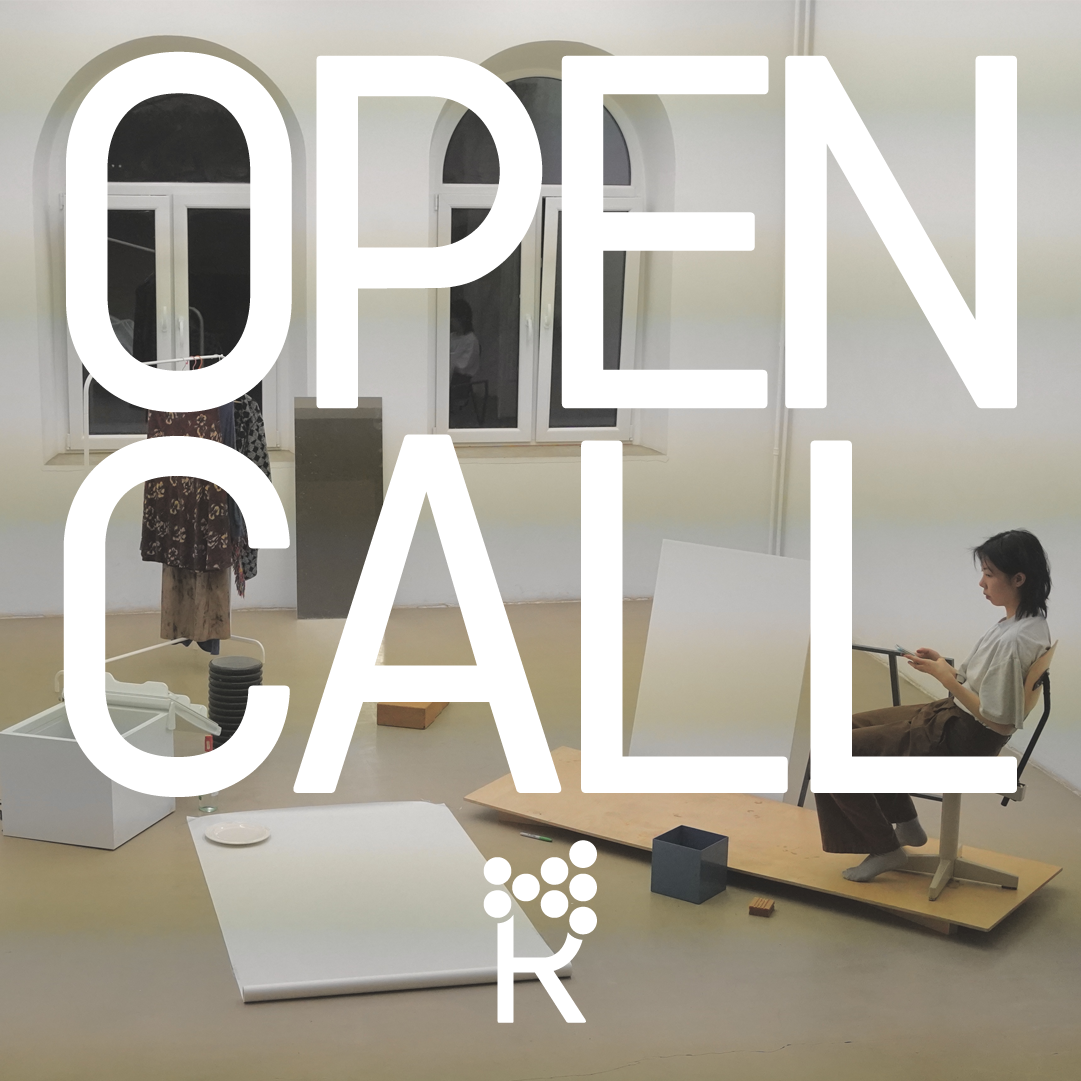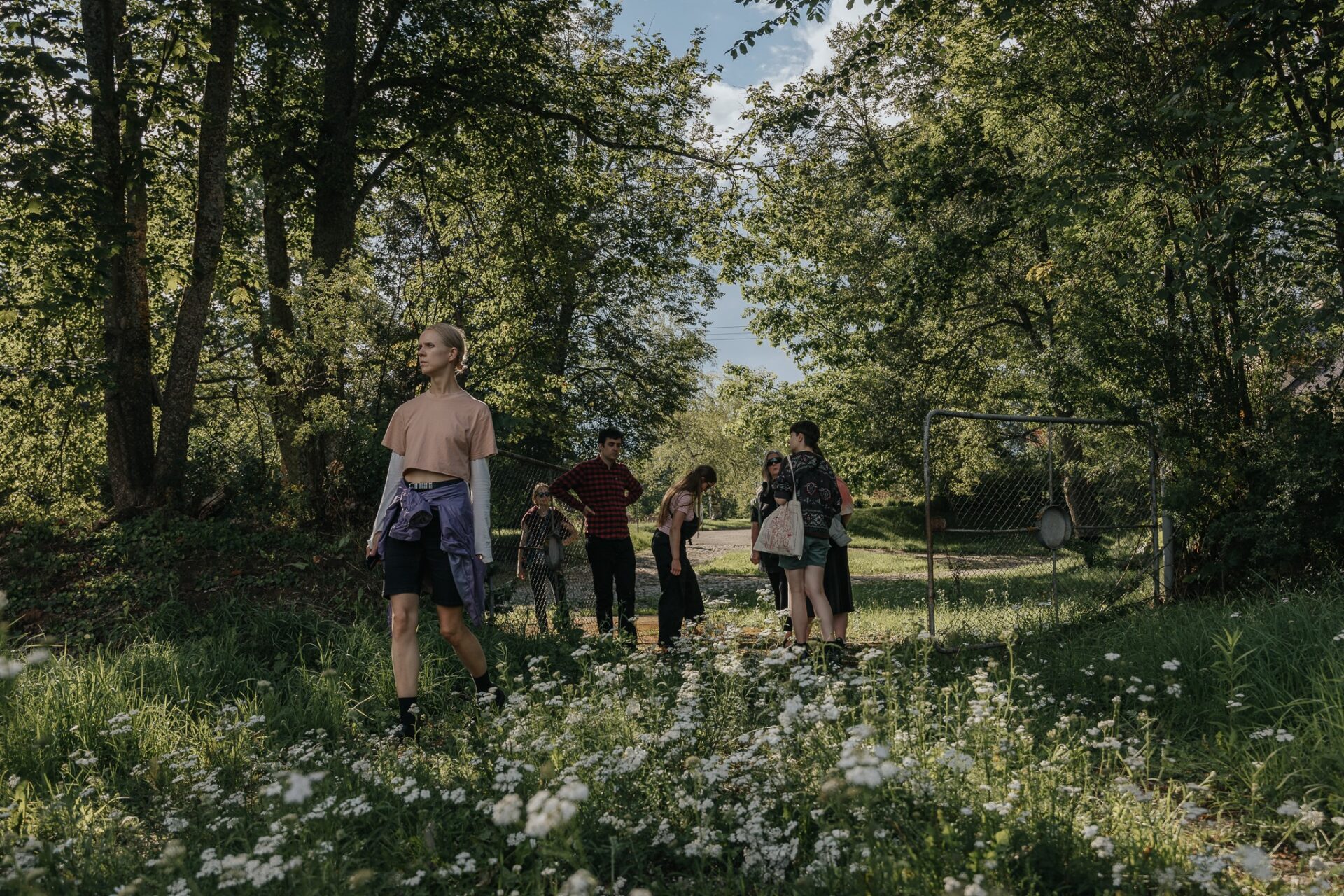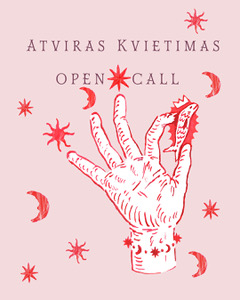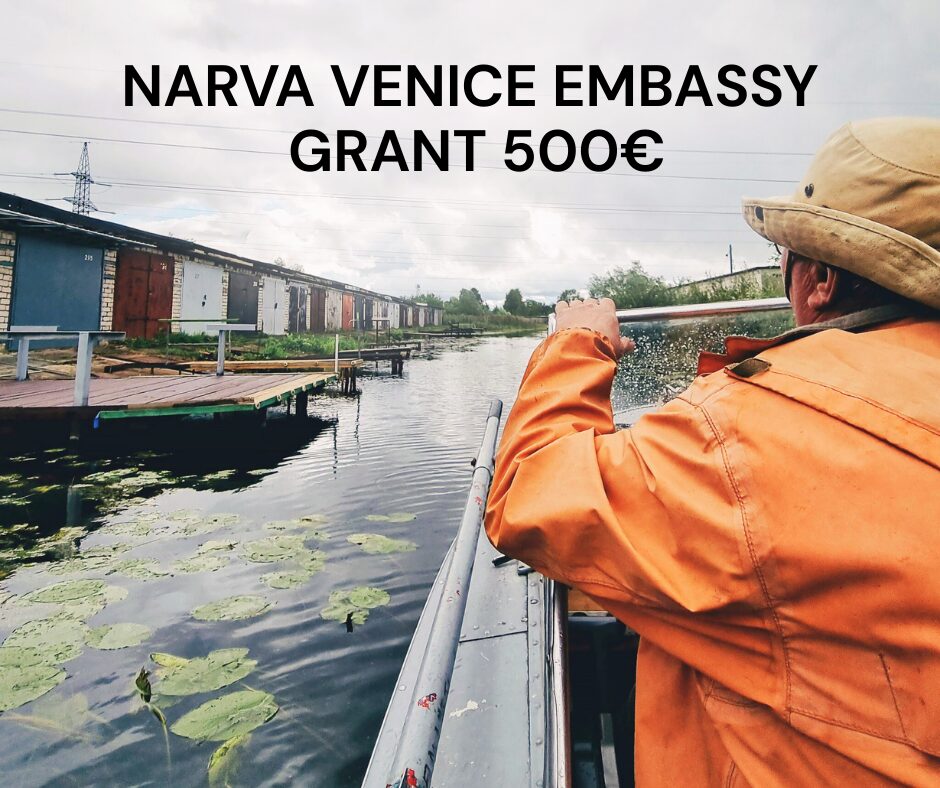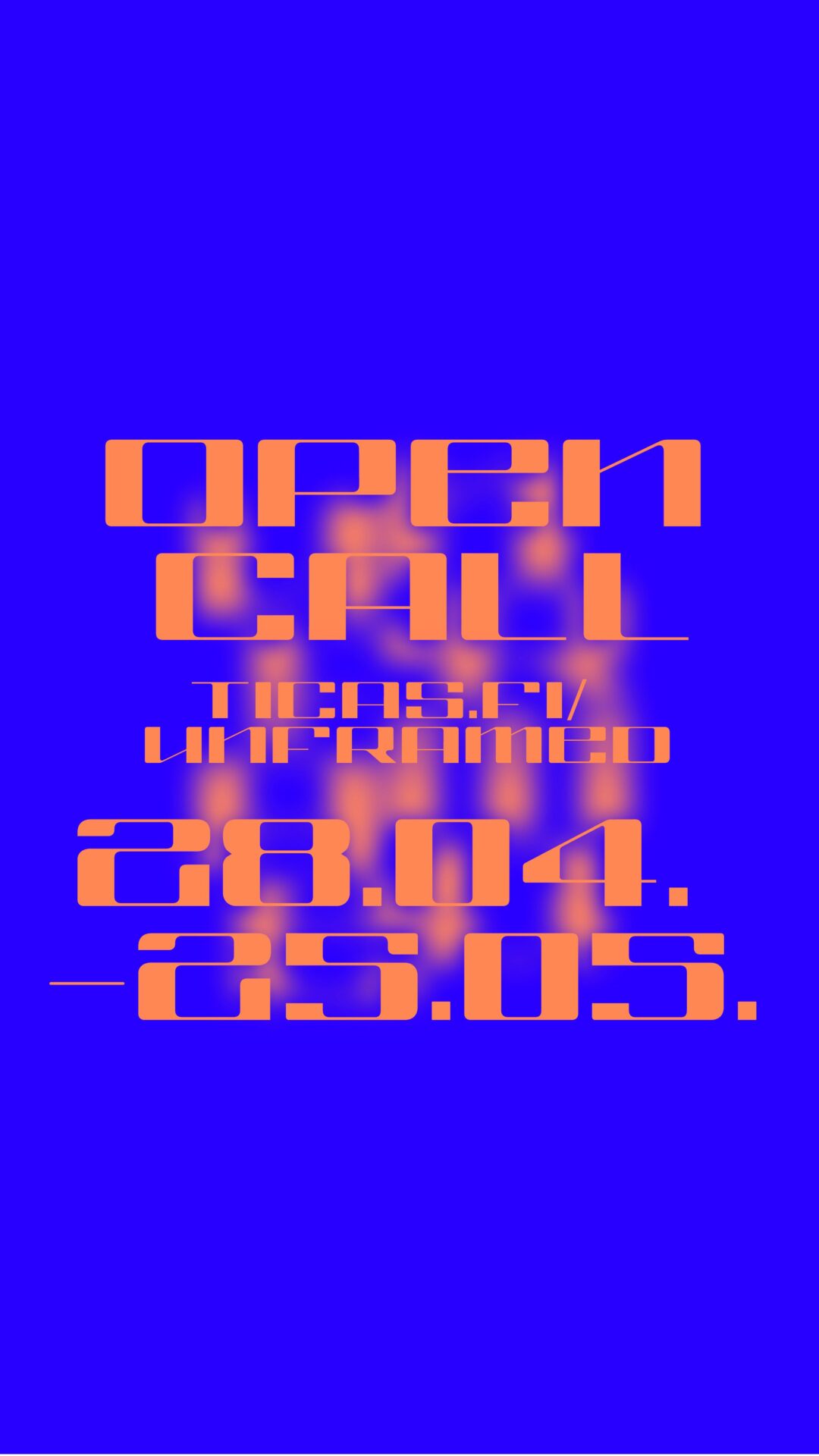Of Modest Competences (a text by Eva Mustonen initially part of the installation Leitmotif part of the exhibition as a spatial intervention)
One of the simple reasons behind E.’s fairly small and fairly infrequent artistic output was her all too detailed vision of the conditions that had to be met before work could begin; this meant that the ideal aesthetic environment in its sheer unattainability, swiftly stifled any budding impulse to work.
She had spent years caught up in these delusions, dreaming up castles in the air that were ever larger and ways of life that were increasingly more righteous, so that the only thing that remained of the options actually available to her, was the dubious certainty that somewhere in the world, in some shape or form, the perfect workstation, or that robe truly befitting an artist, did, in fact, exist, just not here and not yet. That “yet” stretched into years of waiting, as if it was up to the kimono-style robe itself, sewn from colourful scraps of fabric, to materialise out of thin air with a cheerful crack.
E. was keenly aware that dreams required hard graft; despite this, she rarely committed herself to creative explorations, and whenever she did get started on structured and purposeful work, it was soon disrupted by lengthy hiatuses, and not due to some creative block but because E. spent long, restless days and weeks enlivening the studio. This resulted in E. worrying less about making art and more about her work environment, her tools, her appearance, her work-life balance, whether she was getting sufficient social stimuli, and many other seemingly trivial things.
She agonised long and hard over how she ought to work. Should there be something healthy in the fridge so she can have a nibble before lunch? Maybe sticking a flower into a vase could prove invigorating? Should she do her walking in the mornings before work or in the evenings after she’d finished? Is it better to follow a routine or should she trust her gut and do things in whatever order they pop into her head?
And good Lord, how to organise the raw material she’d accumulated over time?! The studio was concurrently at the mercy of all her modes of expression, and that was an immense source of frustration for E. Due to a lack of space, everything was stacked either on top or beneath everything else, making any sort of order impossible!
A spry and enterprising E. could conjure the studio into just the kind of workhorse any ongoing project demanded: if it happened to be woodworking, then woodworking, if she needed to sew a blanket, there’d be large, uncluttered surfaces fit for the cutting, pressing, and sewing of fabric. But this “spry and enterprising” version of E. only existed during her yearly bursts of industriousness. And even that, she felt, tended to be little more than plain lunacy. She just sprung to her feet and took off running in whichever direction, not daring to stop and allow a moment’s reflection, avoiding stillness like the plague. She both dreaded and yearned for those takeoffs because something did, in fact, happen in these aimless scurries, the lunacy notwithstanding.
Instead of being able to work in a brisk premeditated fashion, she was governed by irregular swoops of productivity that were of largely unpredictable quality; over the years, this had led to E. forming two conflicting explanations for her actions. One of these was over-romanticising the concept of the work environment, as described earlier, which reduced all her previous struggles to something belonging to the Dark Middle Ages, or at best, a necessary period of preparation leading up to a complete overhaul of her ways of living and working up to that point.
To make herself feel better, she told herself that considering the circumstances – that is, her environment –, it would have been quite impossible to come up with anything better: “I am still living at a time that precedes the Age when Things Happen. My Sun has yet to reach its zenith.”
The second explanation aspired to be considerably more in touch with reality.
Assuming that E. had no choice in the matter, her behaviour had to have an underlying reason. She had to be doing it on purpose. Looking back, her aimless muddles and stretches of silence had a sort of inner rhythm. The continuous failure of keeping up a work routine was not a deviation from the norm, but something intentional, a meaningful action. E. made decisions, and not solely bad ones, but also aesthetical, creative decisions. This hypothesis only held on the assumption that the erratic scrambling and low-success-rate-lunacy corresponded to E.’s general outlook on life. She was paralysed by her incompetence at life – it was only when asleep that she escaped the guilt – it, therefore, made perfect sense for this to also manifest in her work methods, which were characterised by treading water, sincere yet unproductive toil, ignorance, and indecisiveness.
E. told the visitors of her exhibition, while shyly inspecting the toes of her shoes, and very likely with a measure of false humility, that she herself had doubts about what the main ingredient of this concoction actually was.
The comforting explanations did nothing to quieten the demons in E.’s head. She was all too aware that if this was how she continued to express herself, the audience would never get it.
Could this be what she was trying to express – incompetence?
The E. that she knew best was happy to succumb to a nameless Inevitability, as though her destiny had been decided during early childhood.
“Why do I do what I do?” E. asked and was uncertain if she should shut up with embarrassment or raise her voice and repeat the question.
***
Group exhibition The Weak Fins of My Few Skills on view at Pärnu City Gallery from February 2 until February 25, 2023.
Artists: Laura De Jaeger, Joosep Kivimäe, Johannes Luik, Kaisa Maasik, Tiiu Maasik, Eva Mustonen and Mathias Väärsi
Project manager: Elo Meier
Graphic design: Studio Sume
Exhibition is supported by the Jaanihanso Cider Factory, PERI AS, Pärnu City, Visual and Applied Art Endowment and the Expert Group of Pärnumaa of the Cultural Endowment of Estonia
The artist expresses her gratitude to: Estonia Medical Spa & Hotel, Karel Koplimets, Kusja, Mariel Värk, Nienke Fransen, Pärnu Yacht Club, Villa Wesset
Photography: Karel Koplimets
